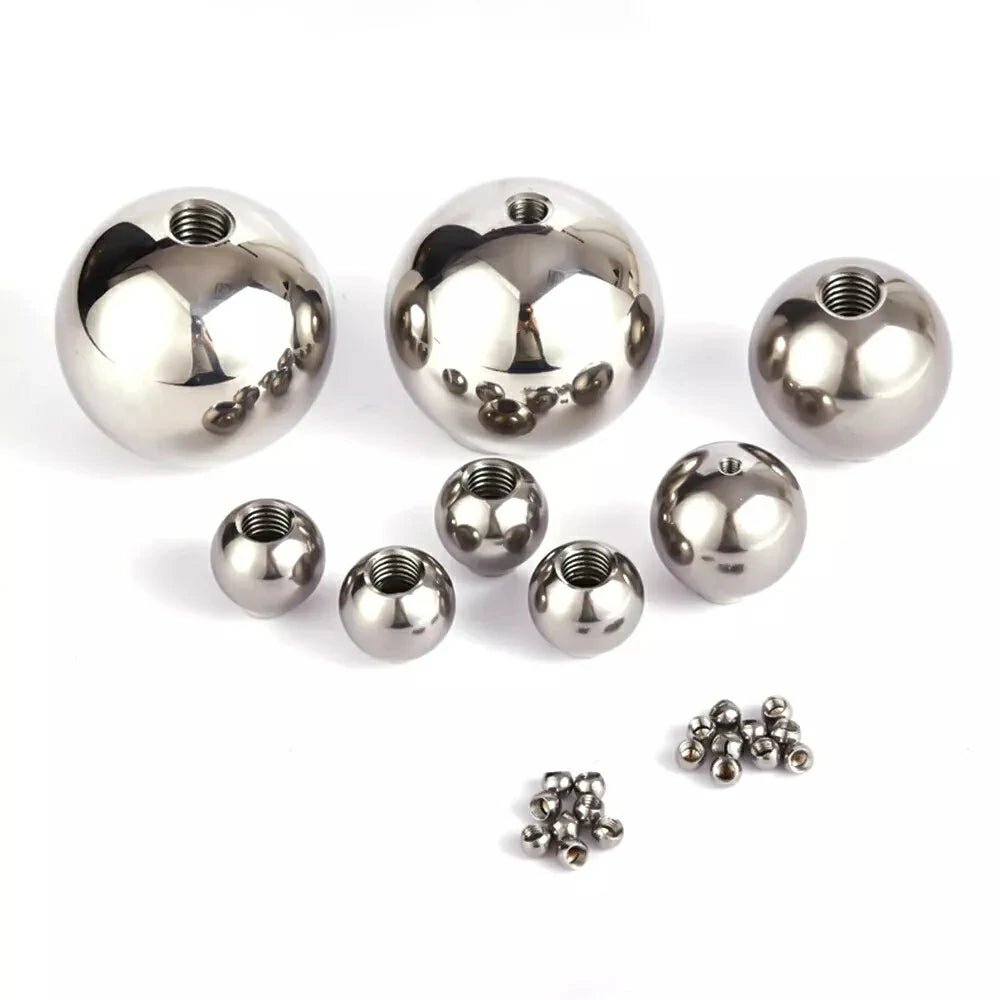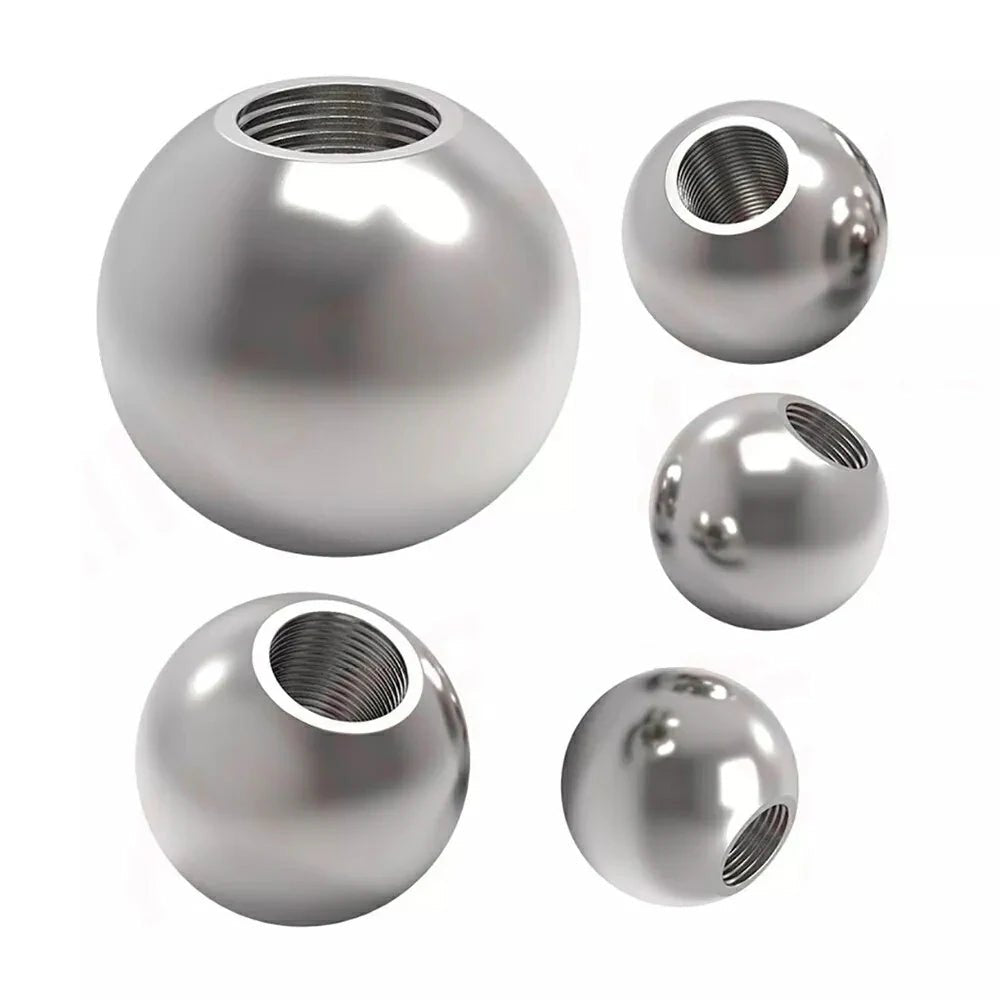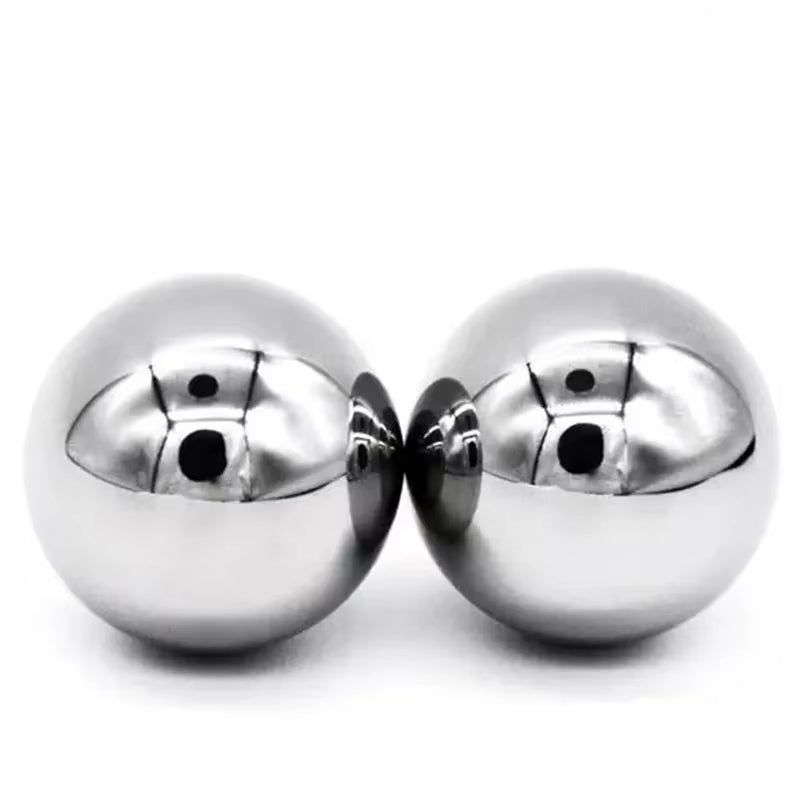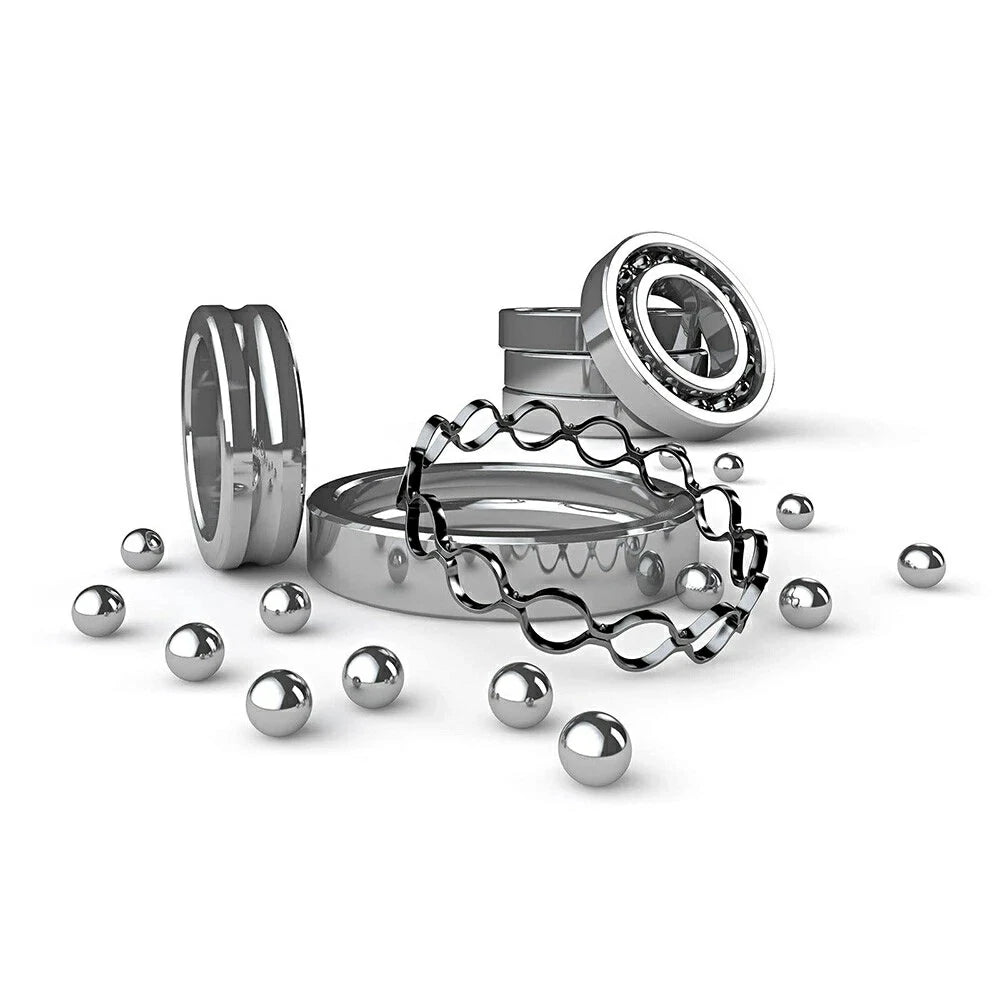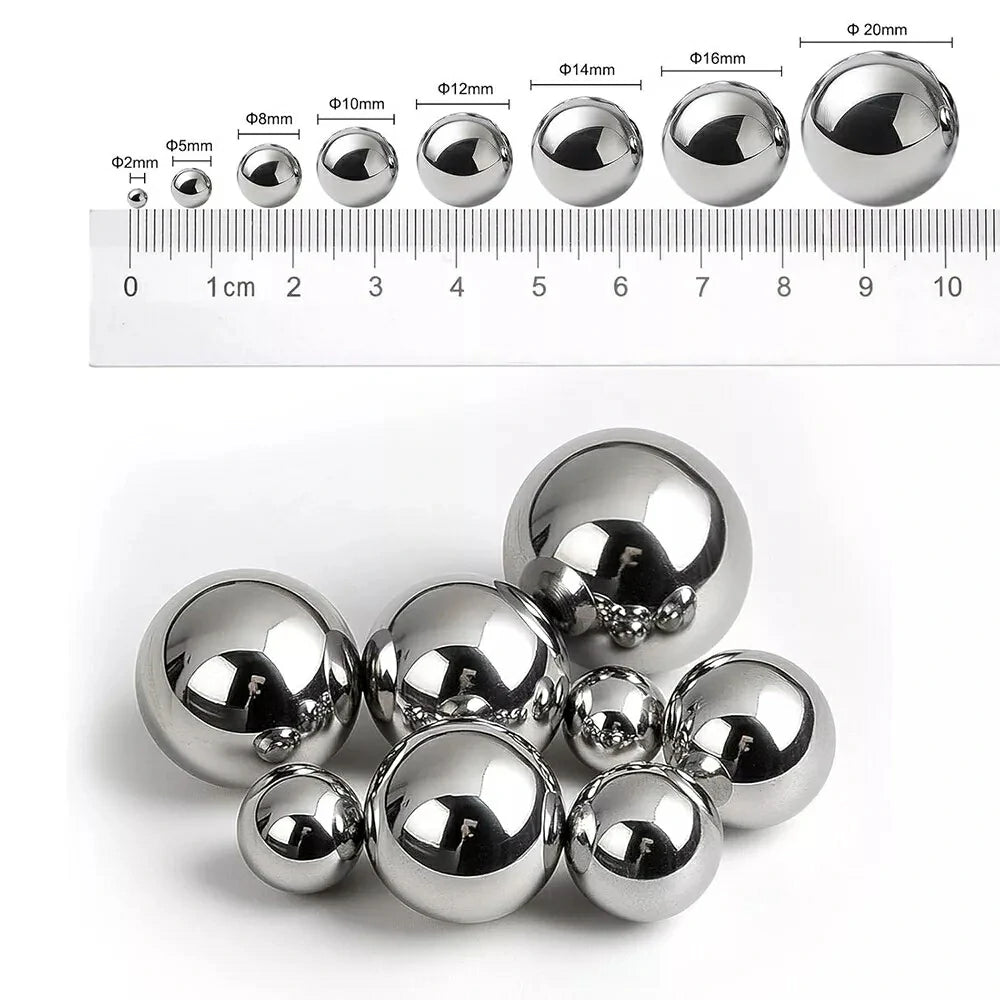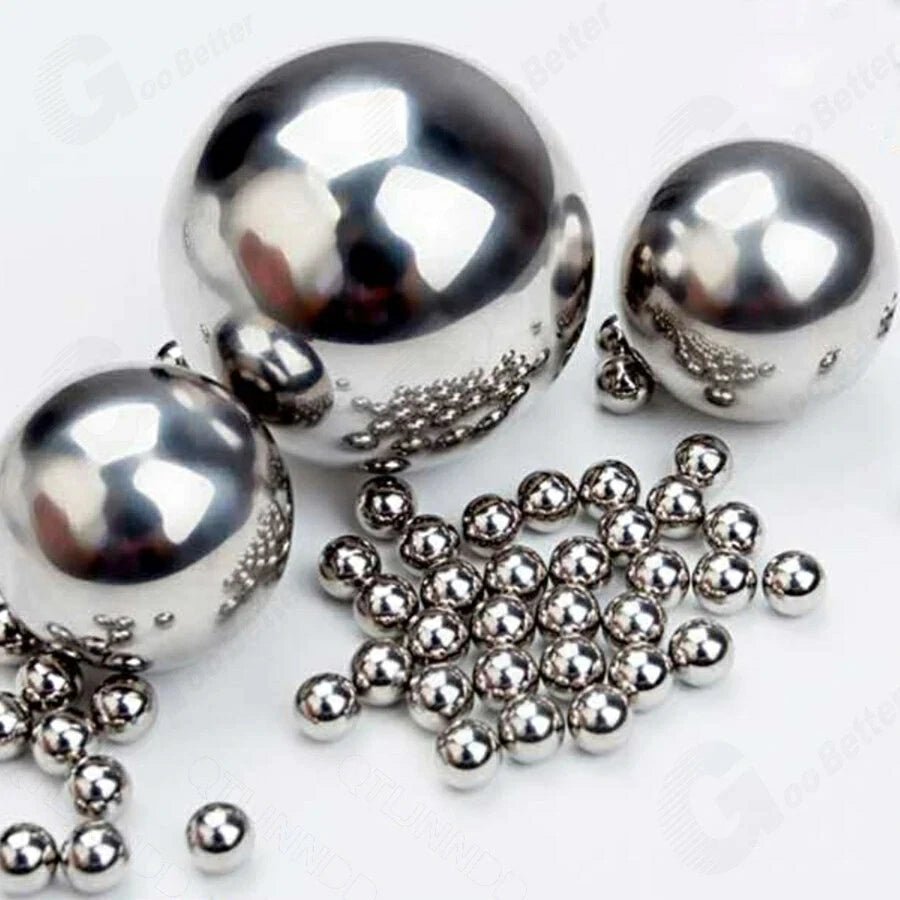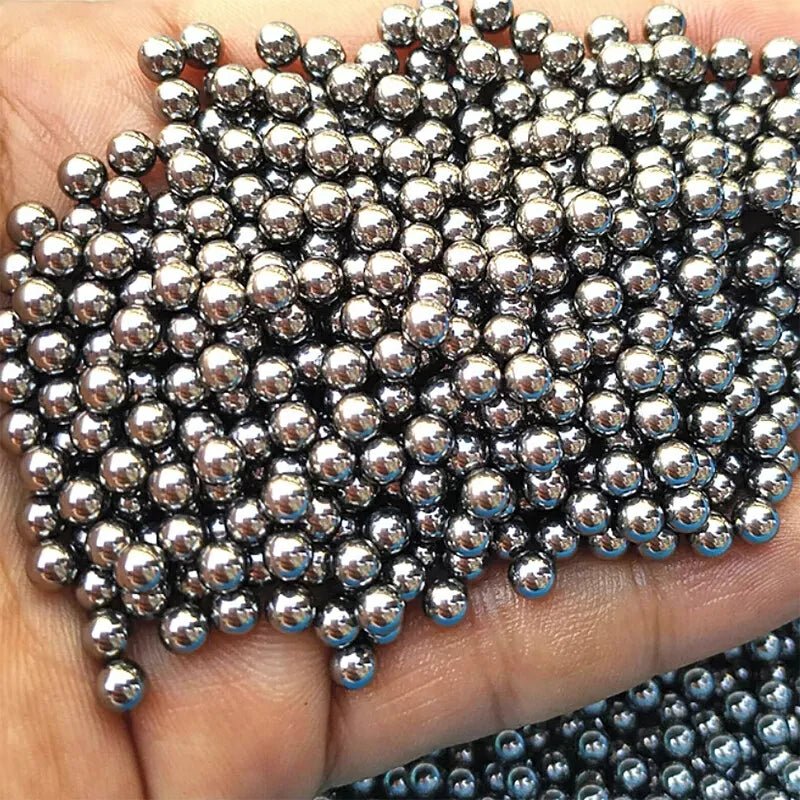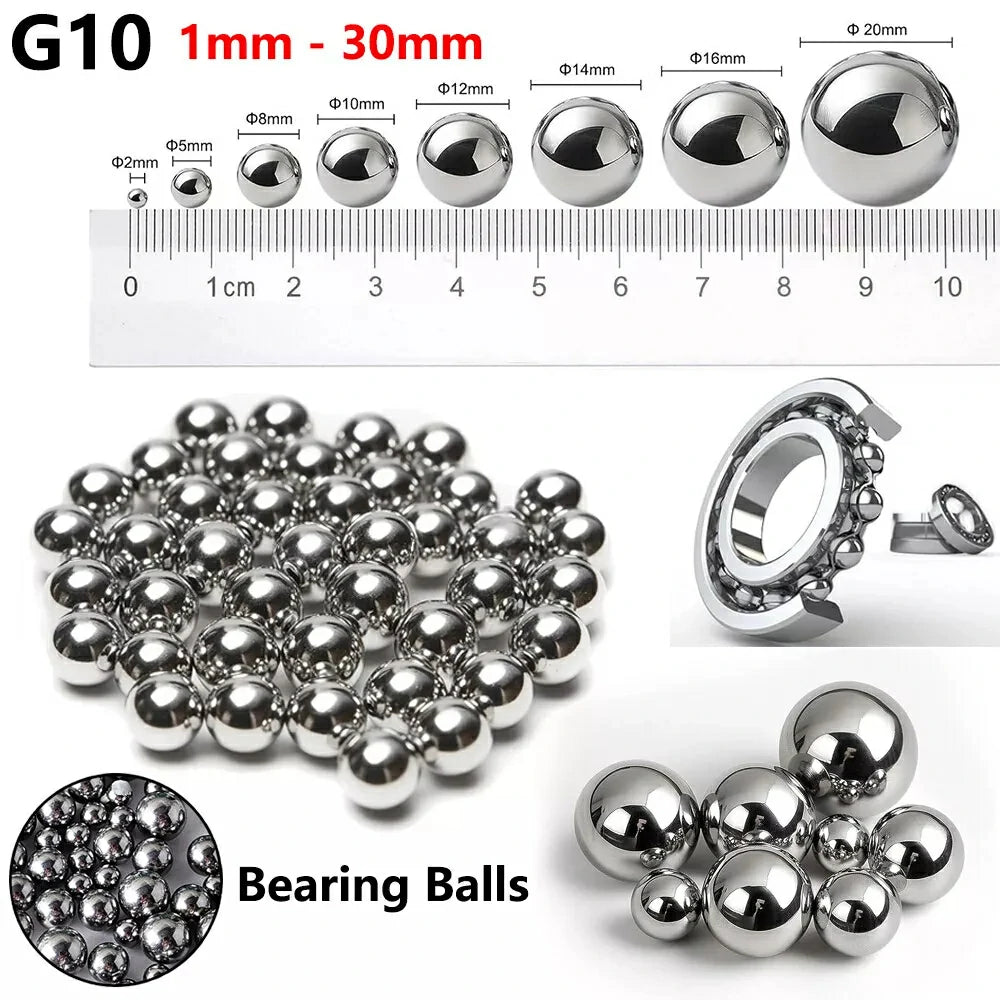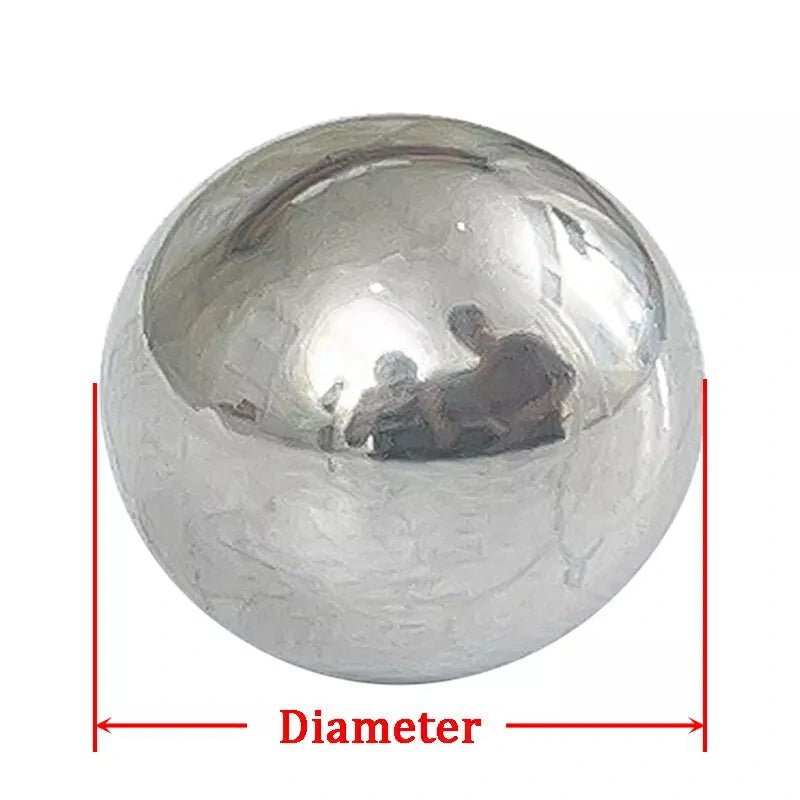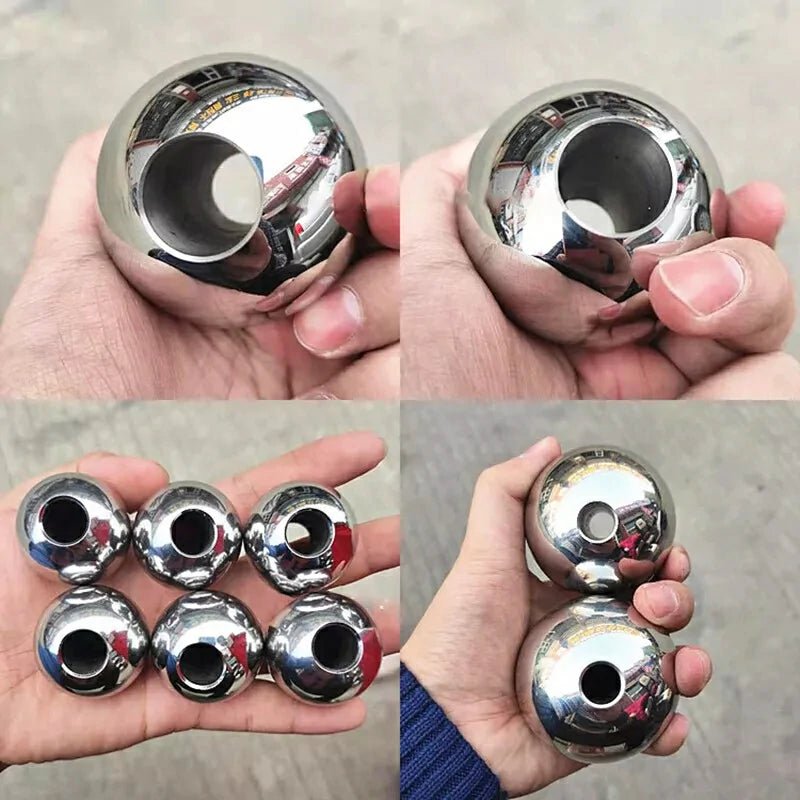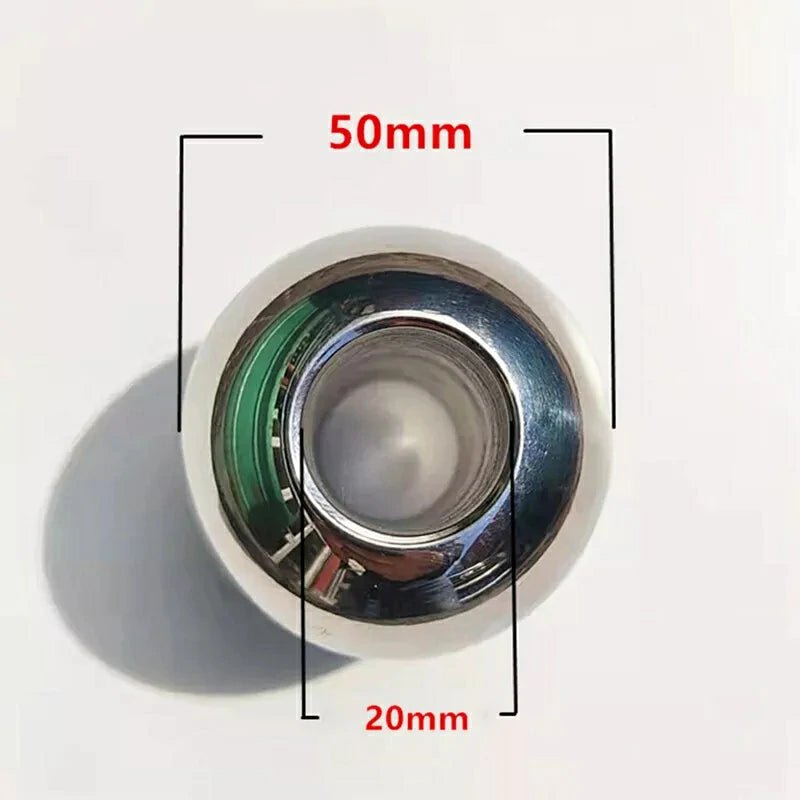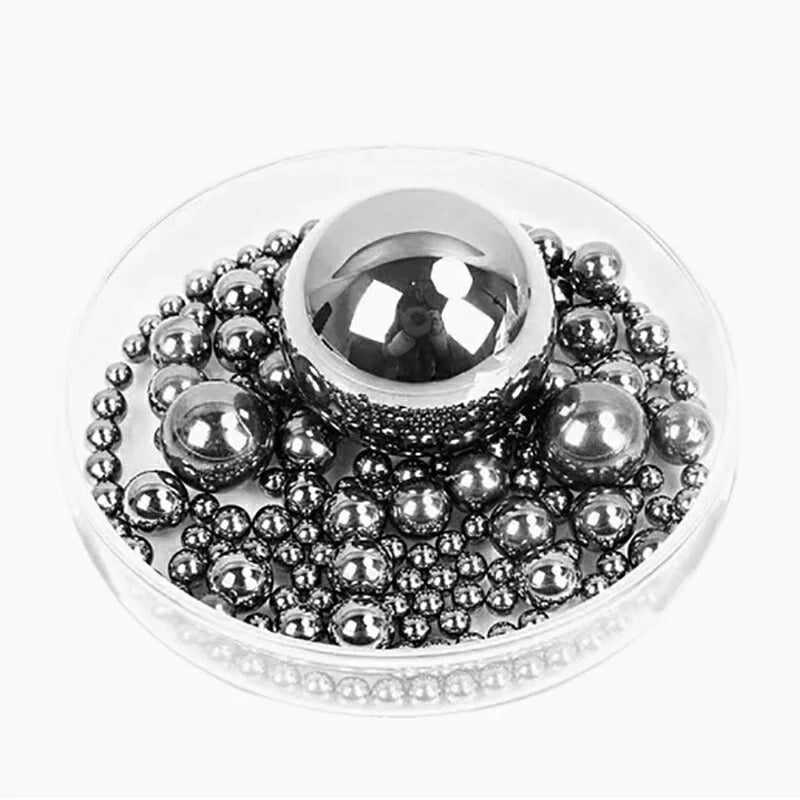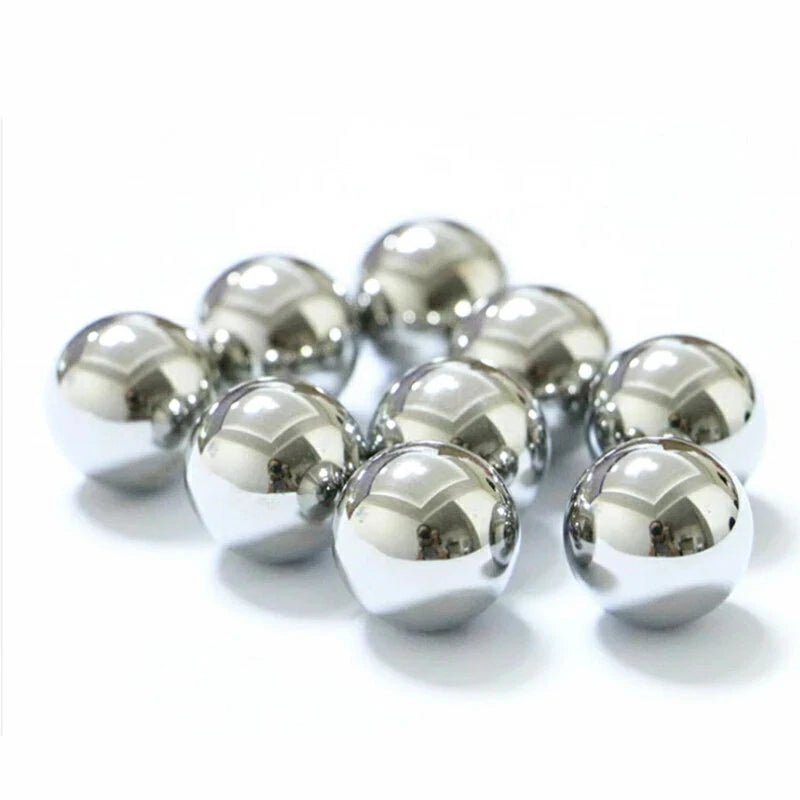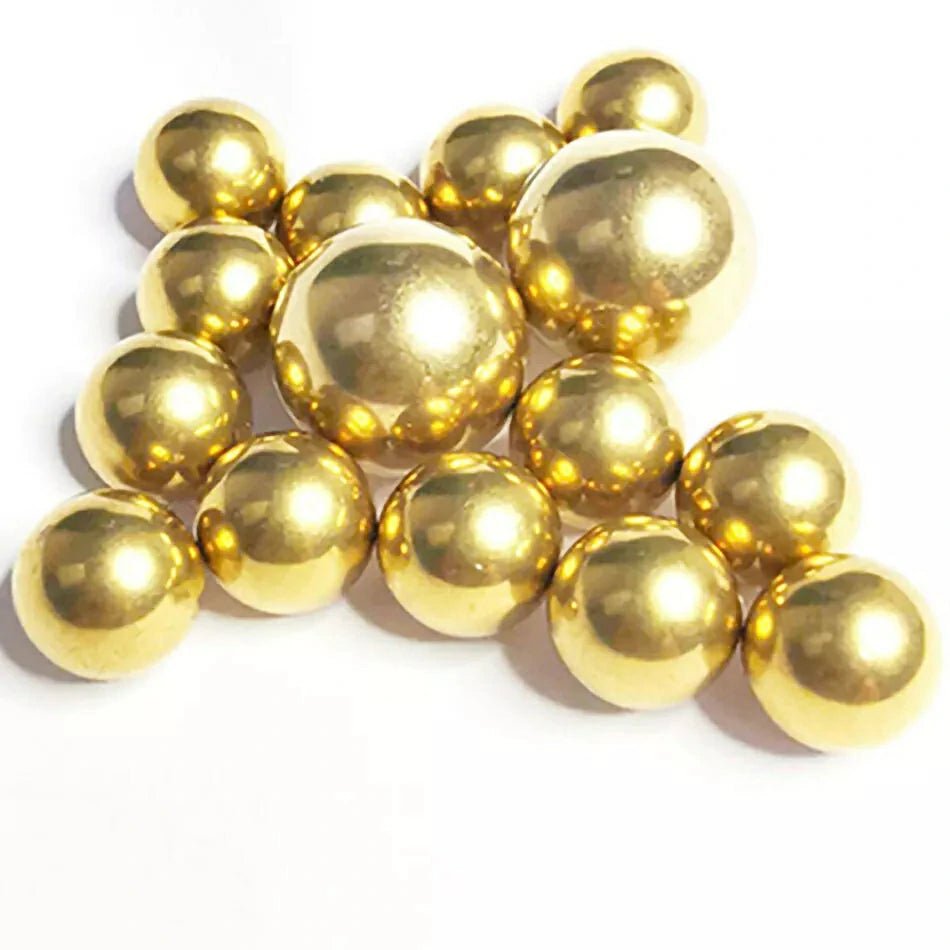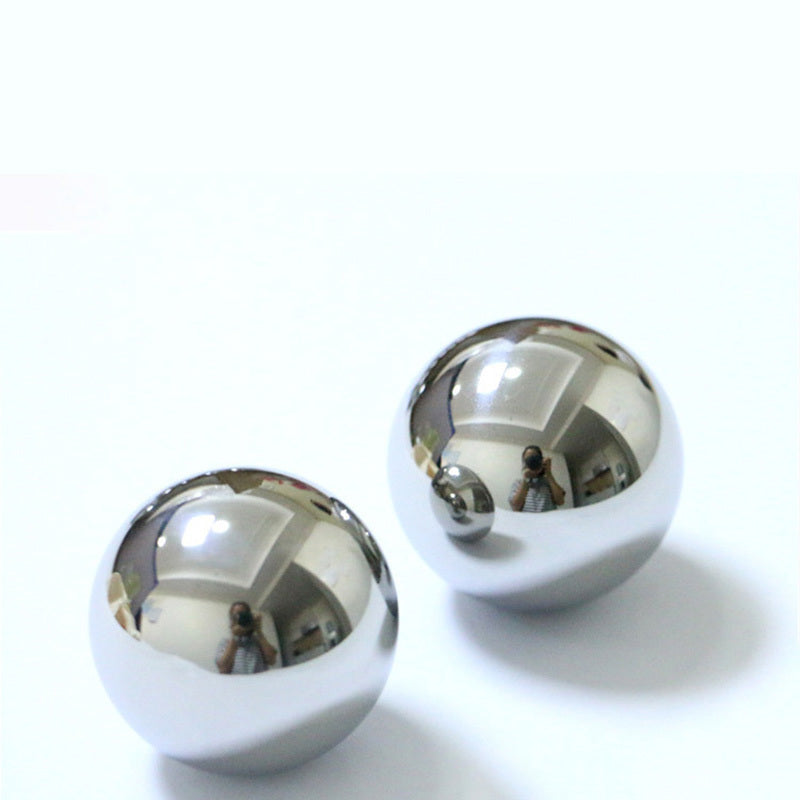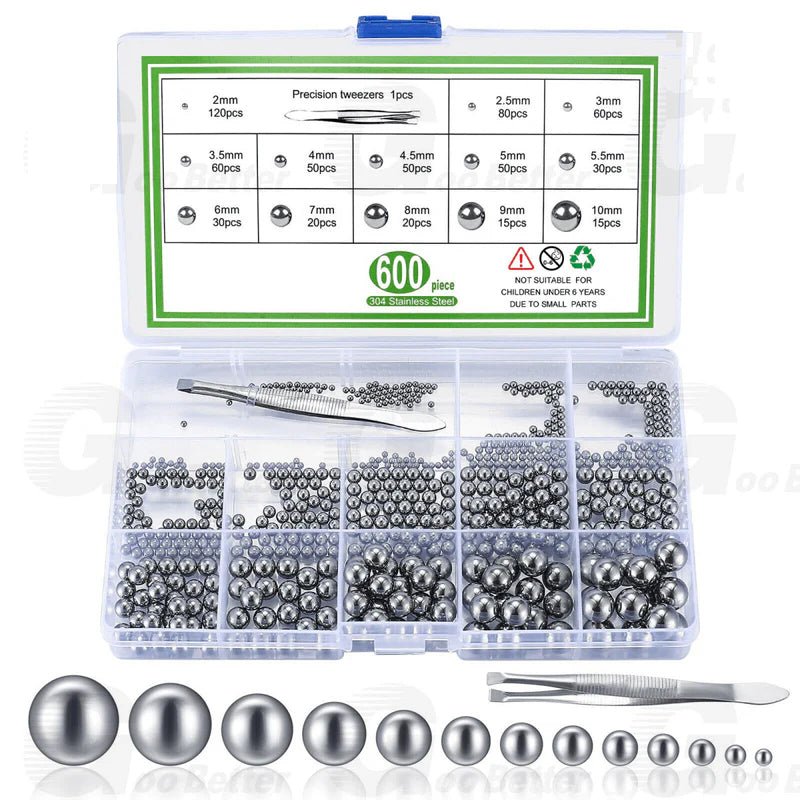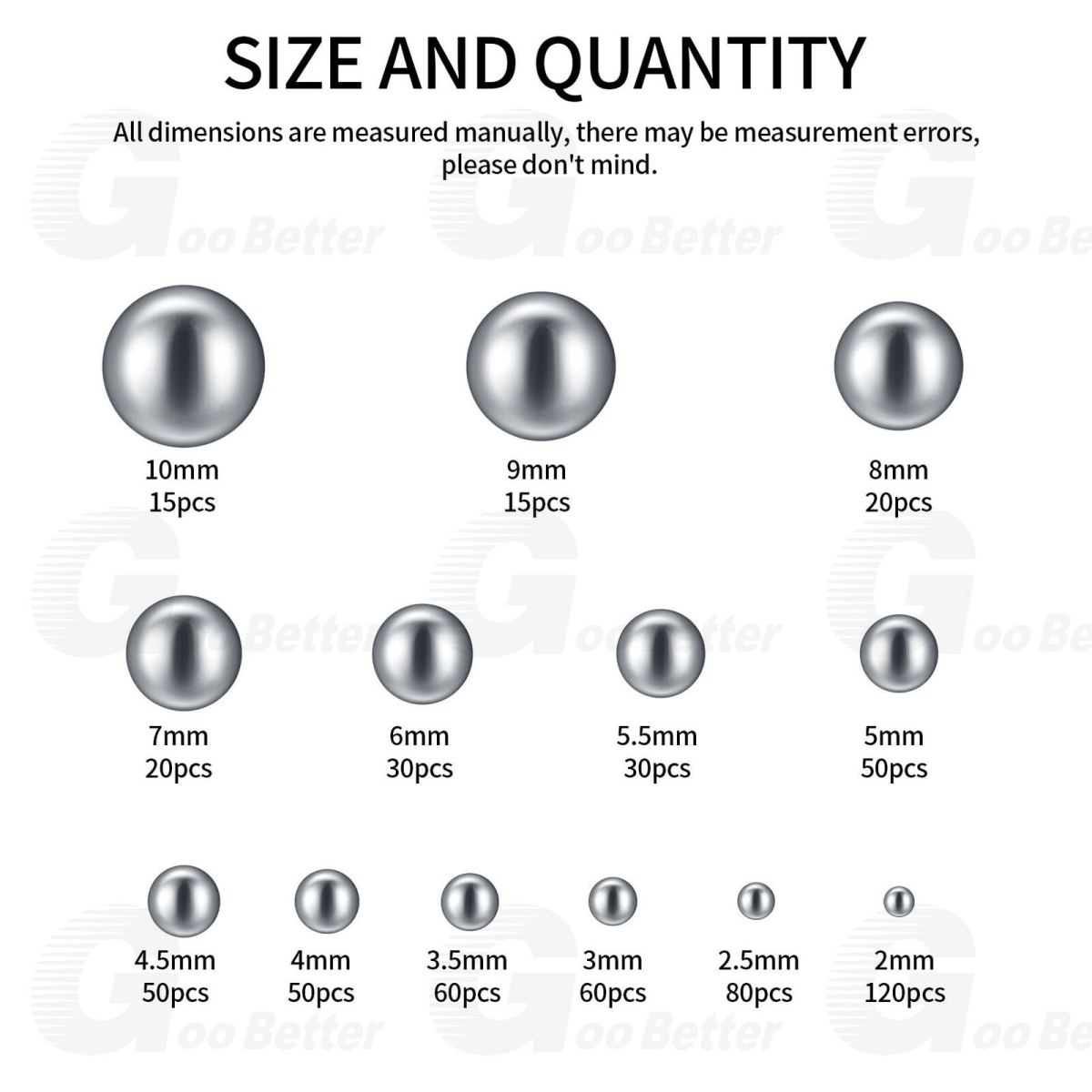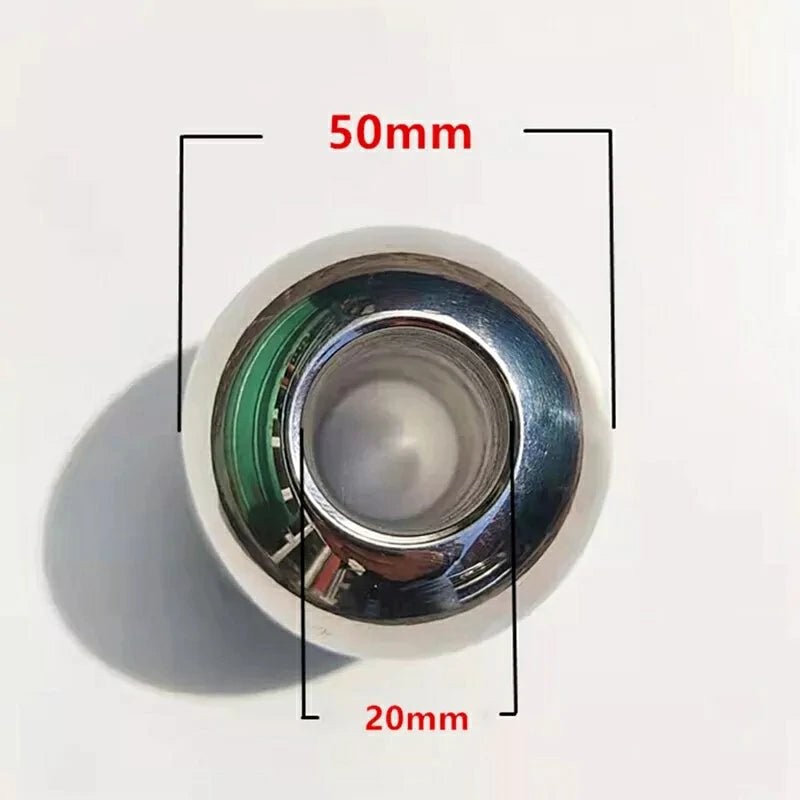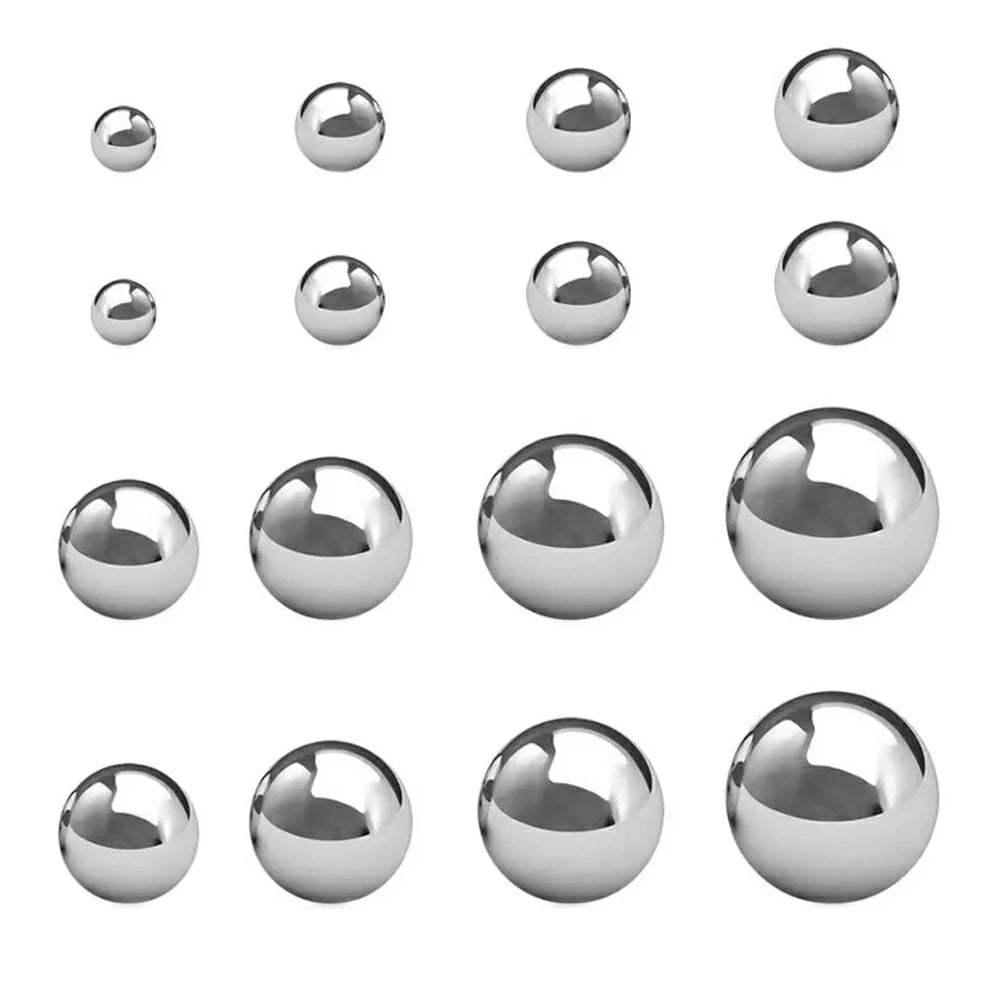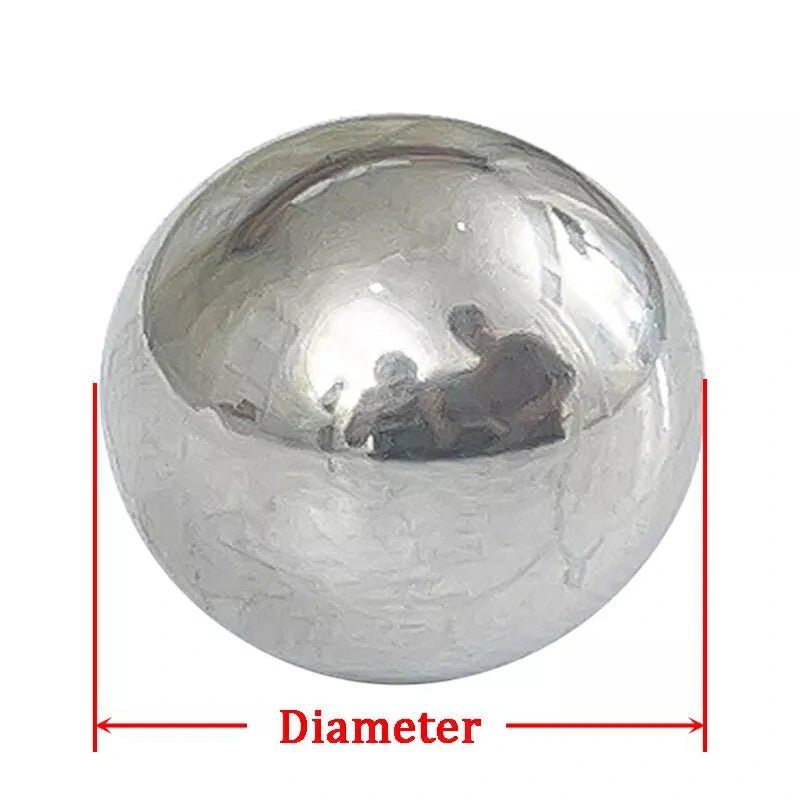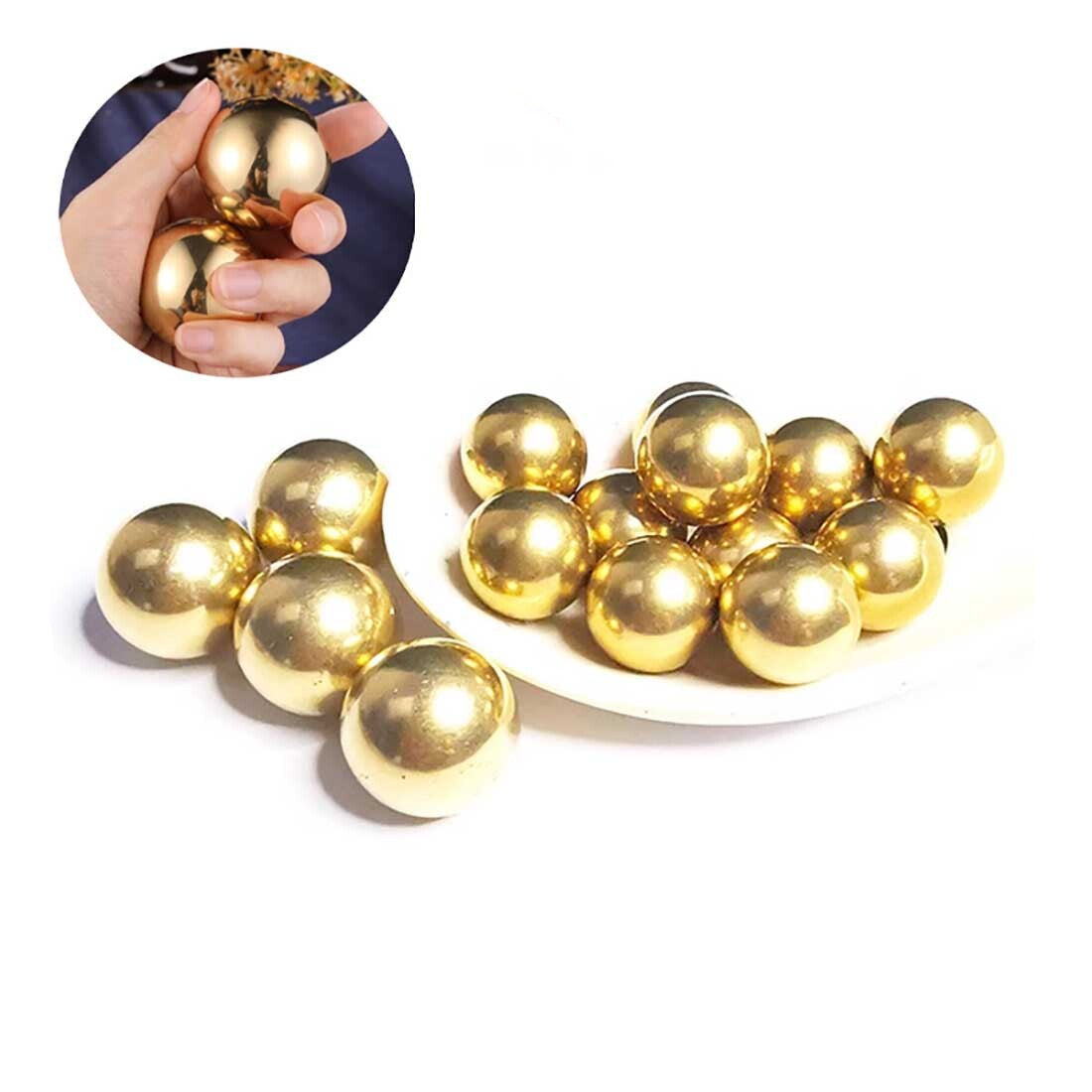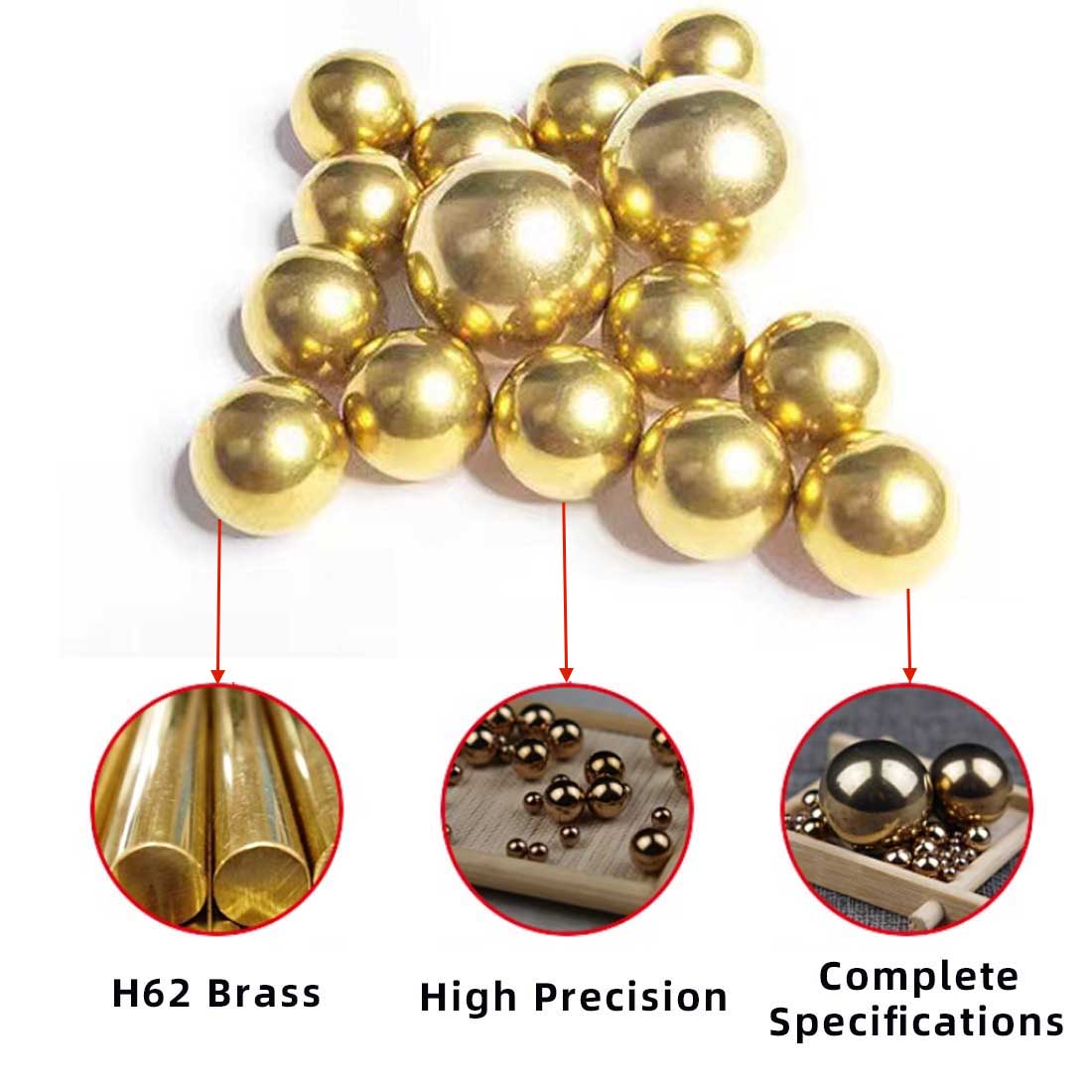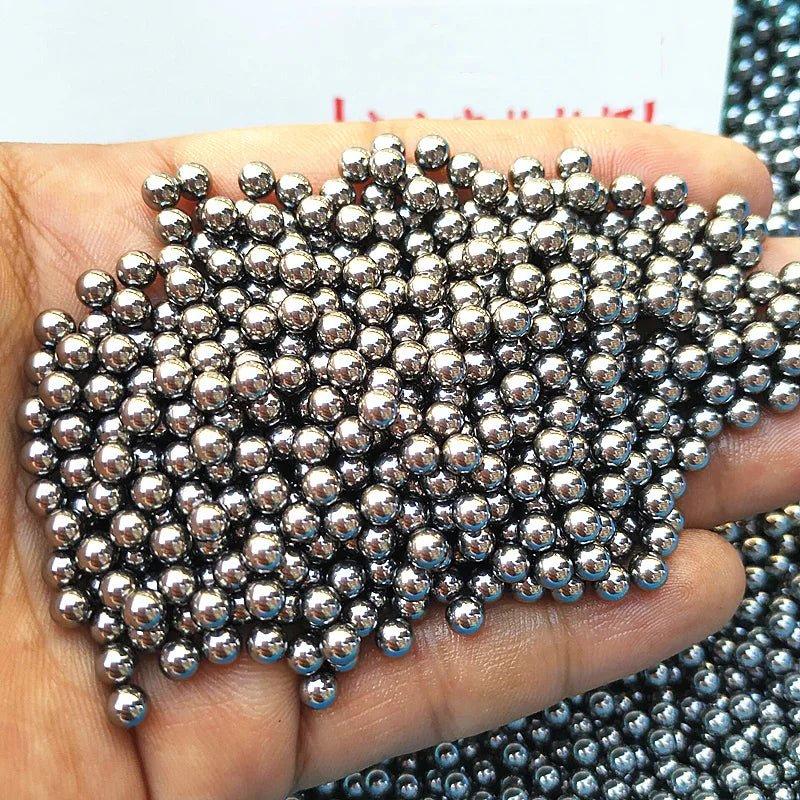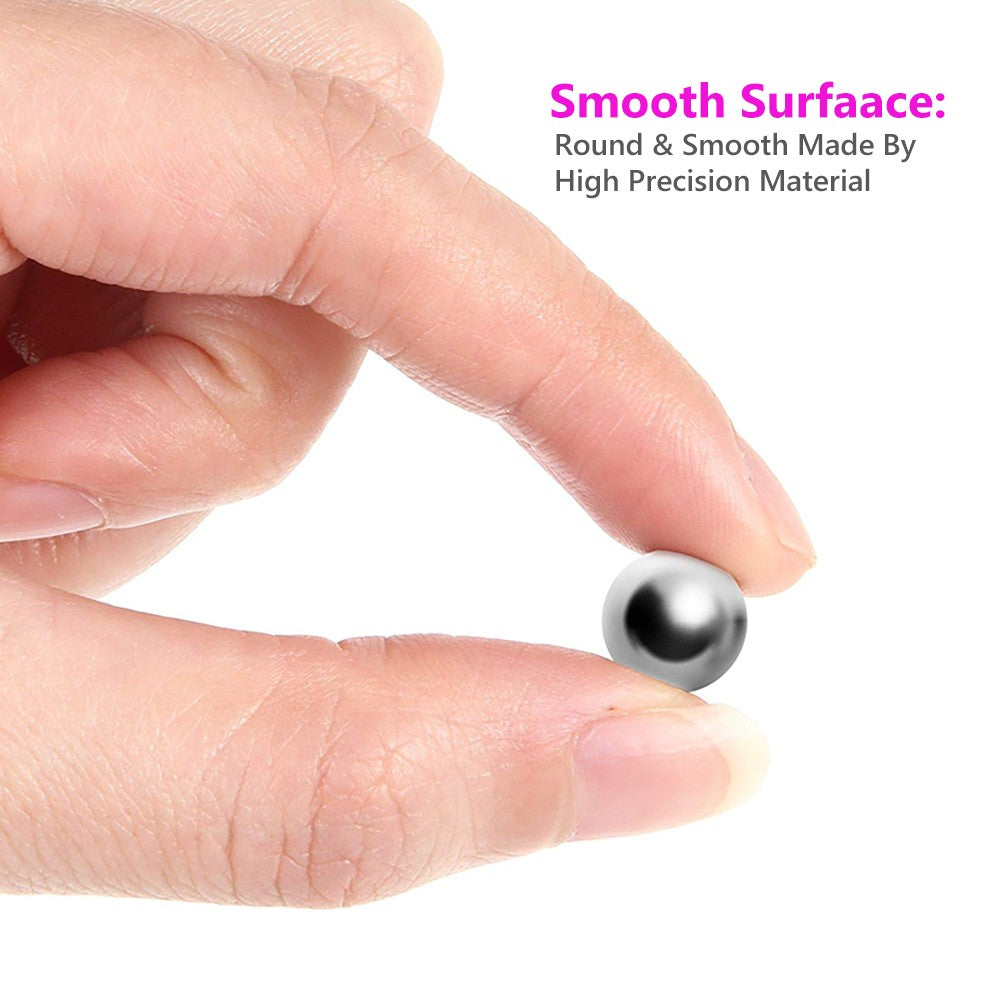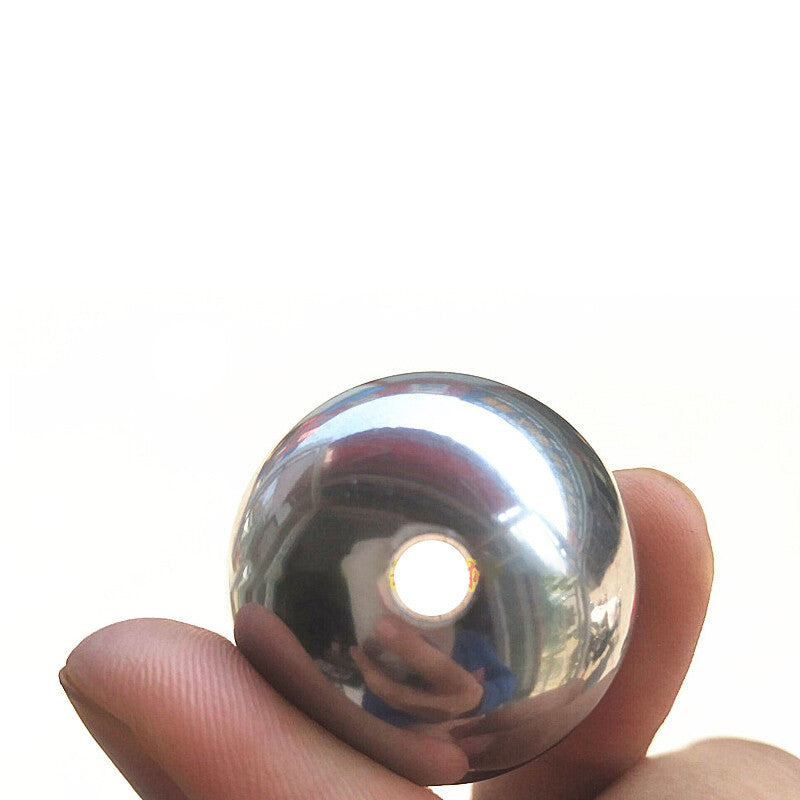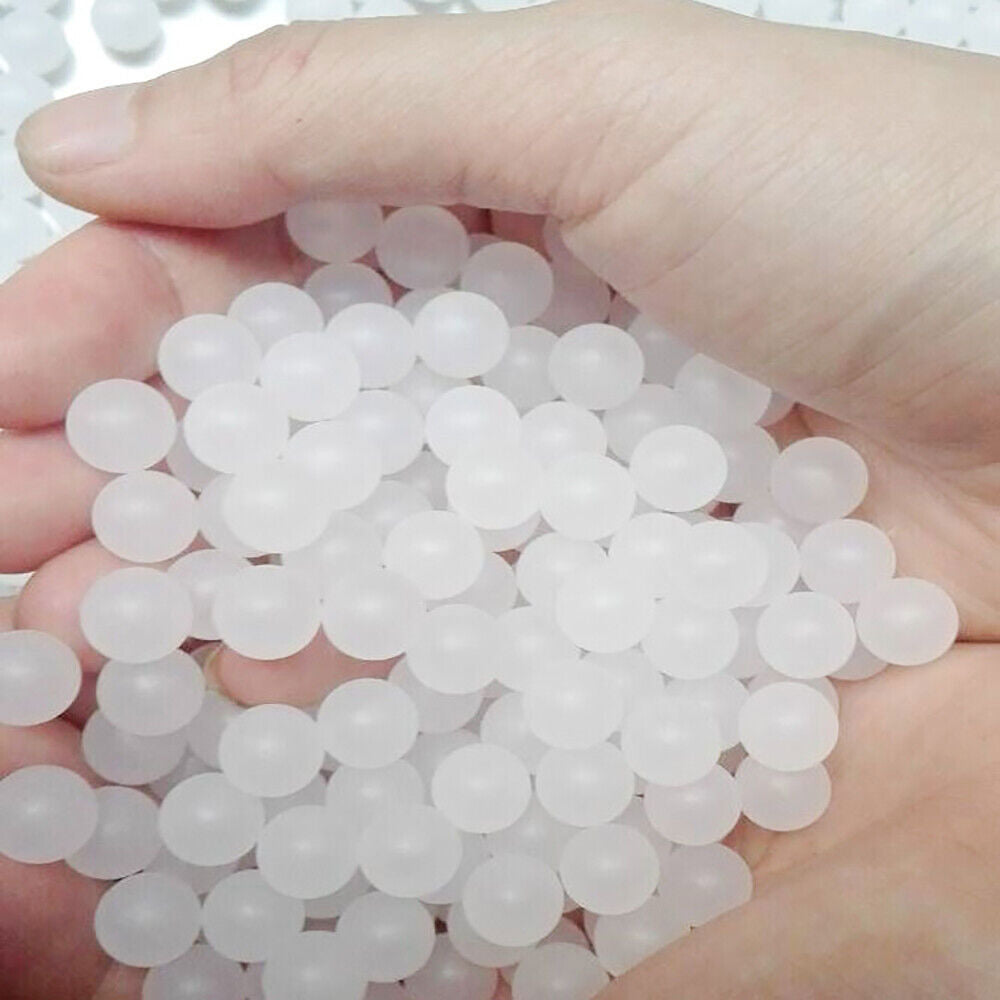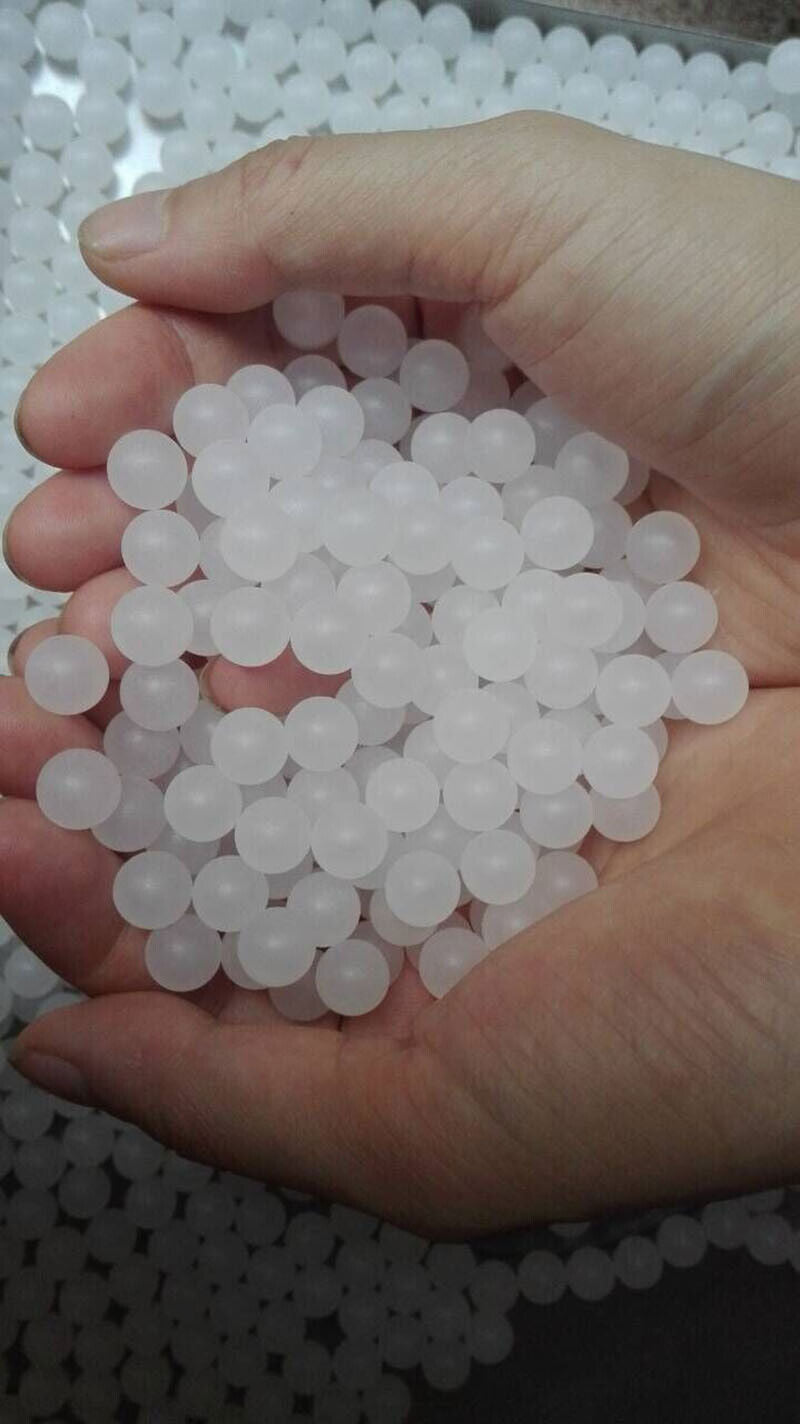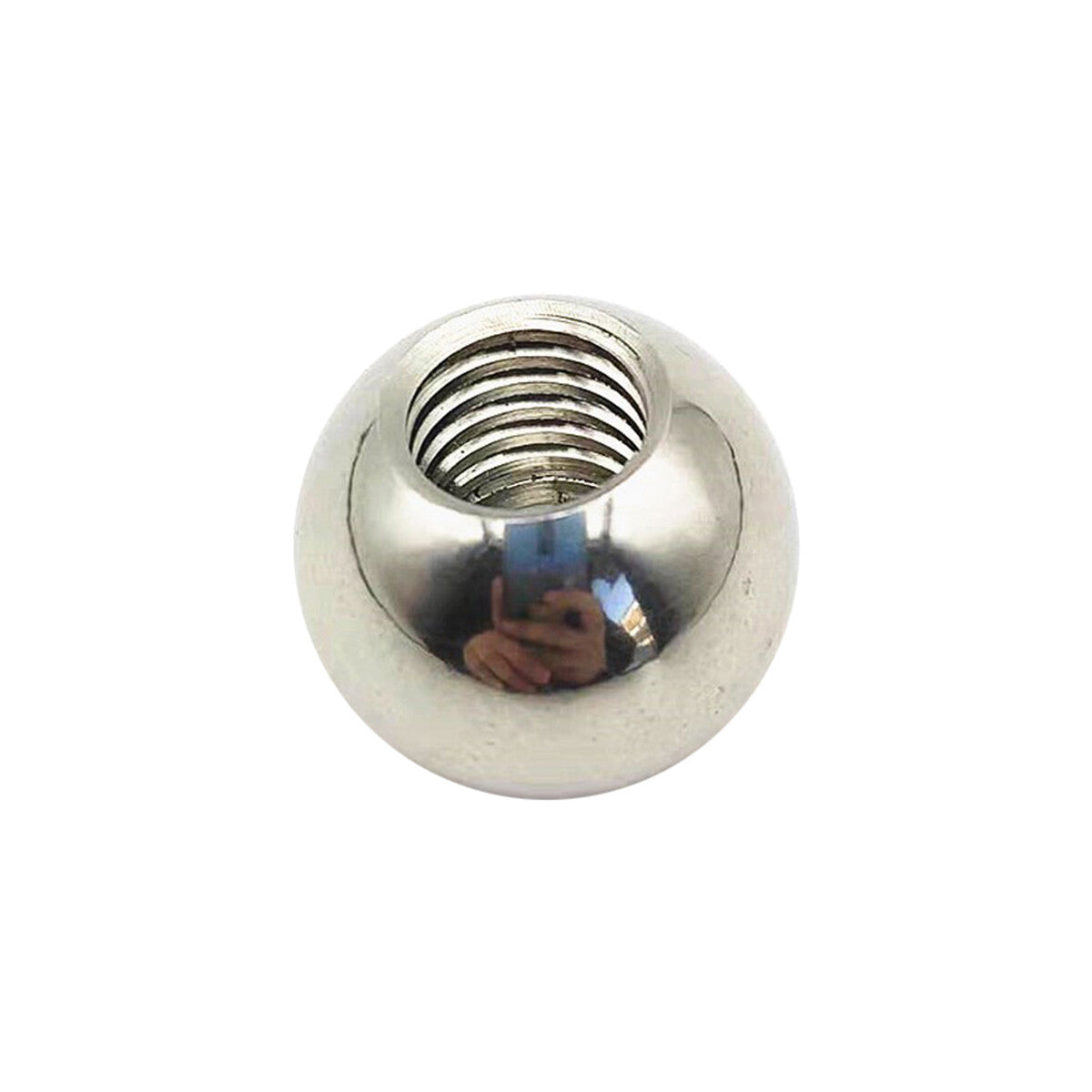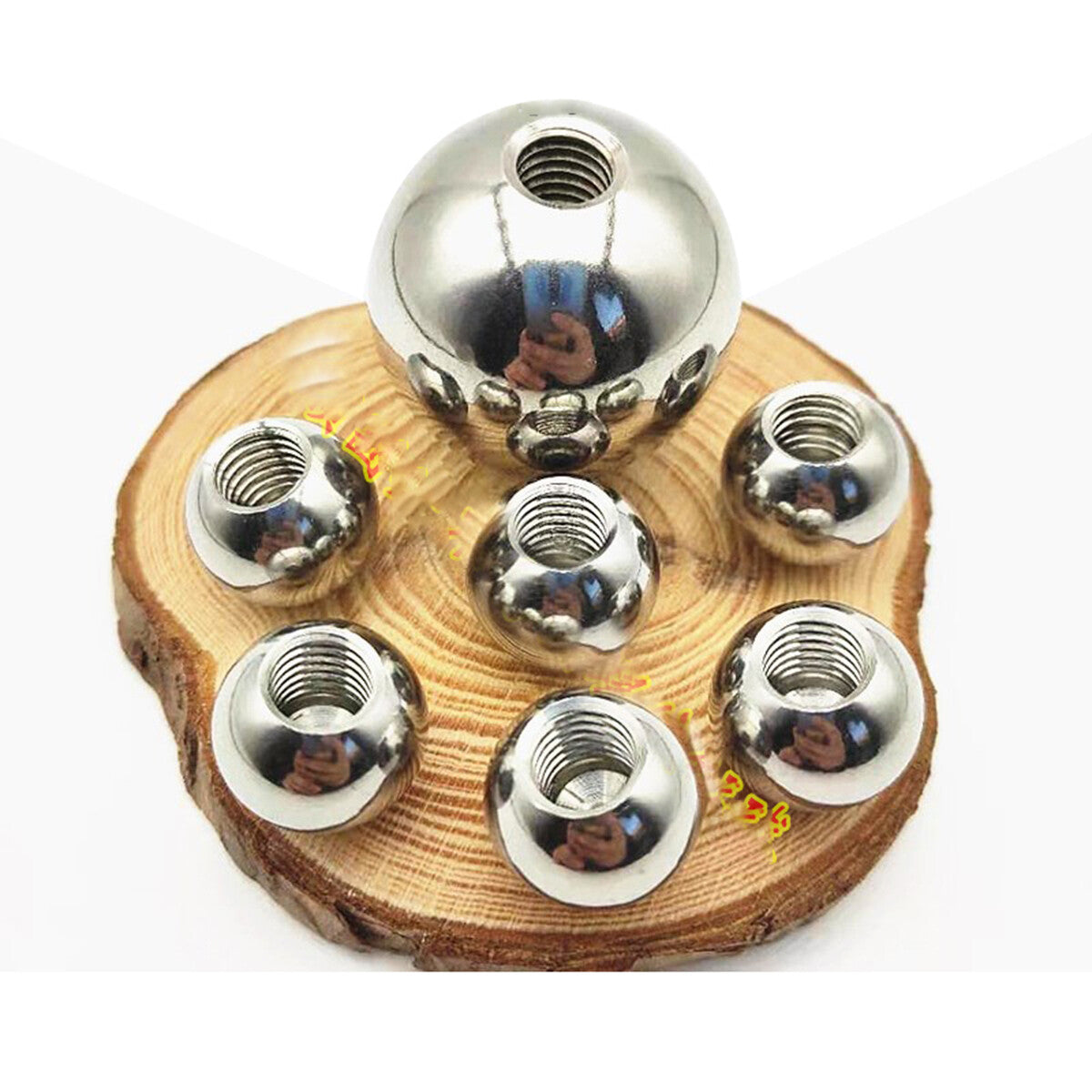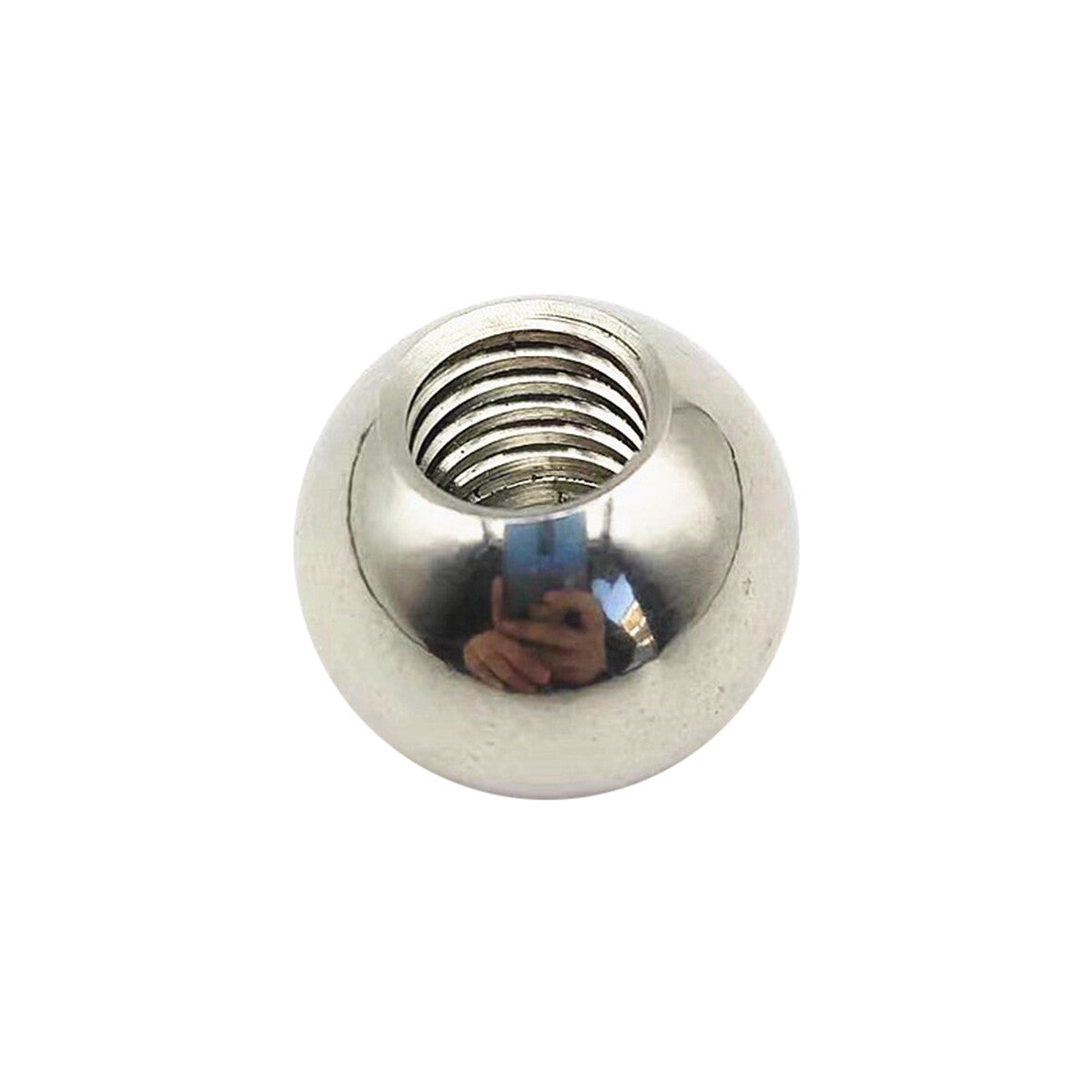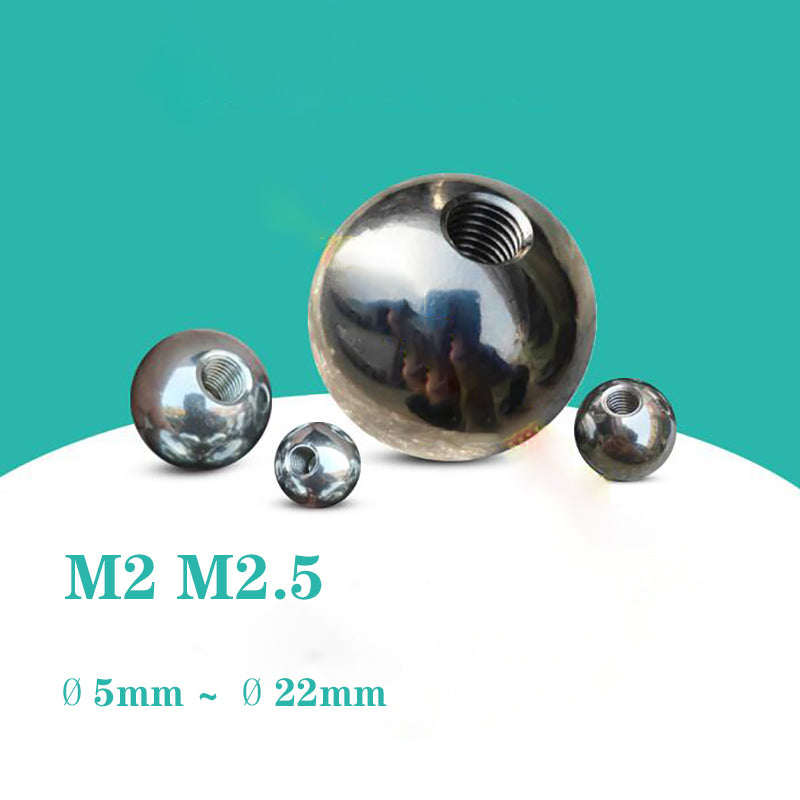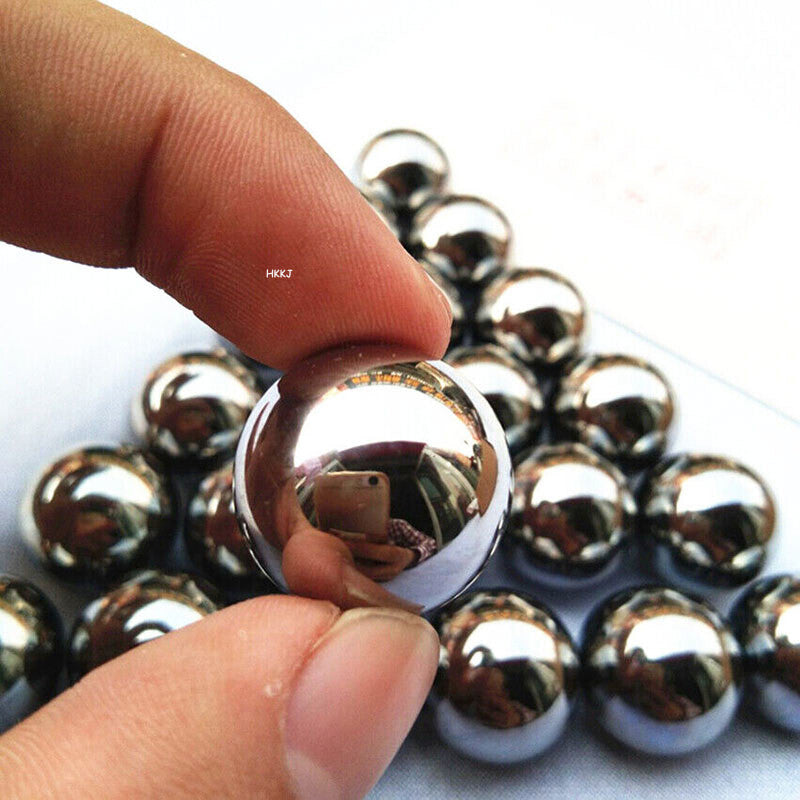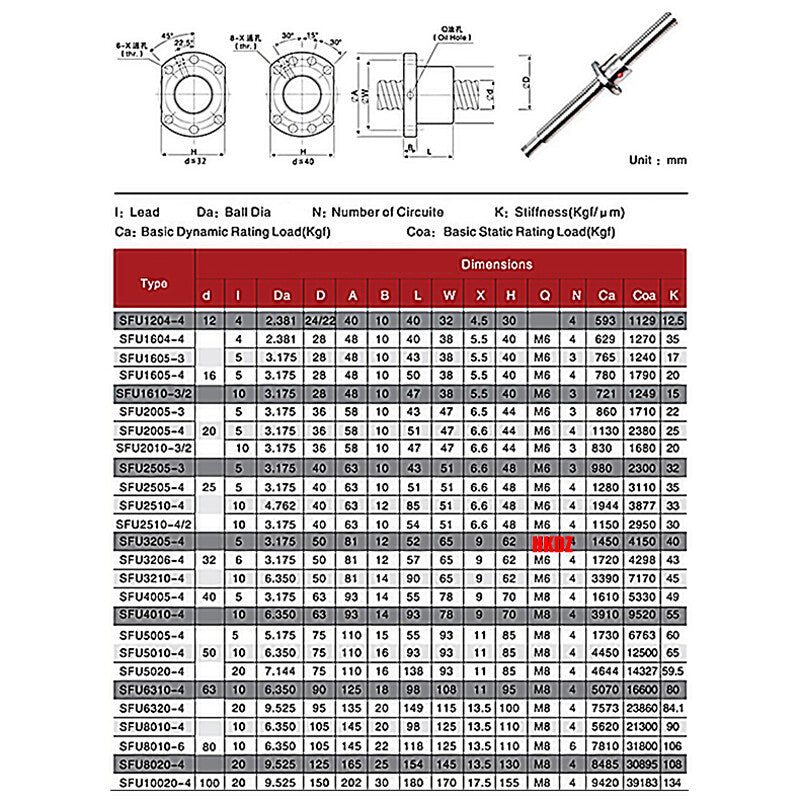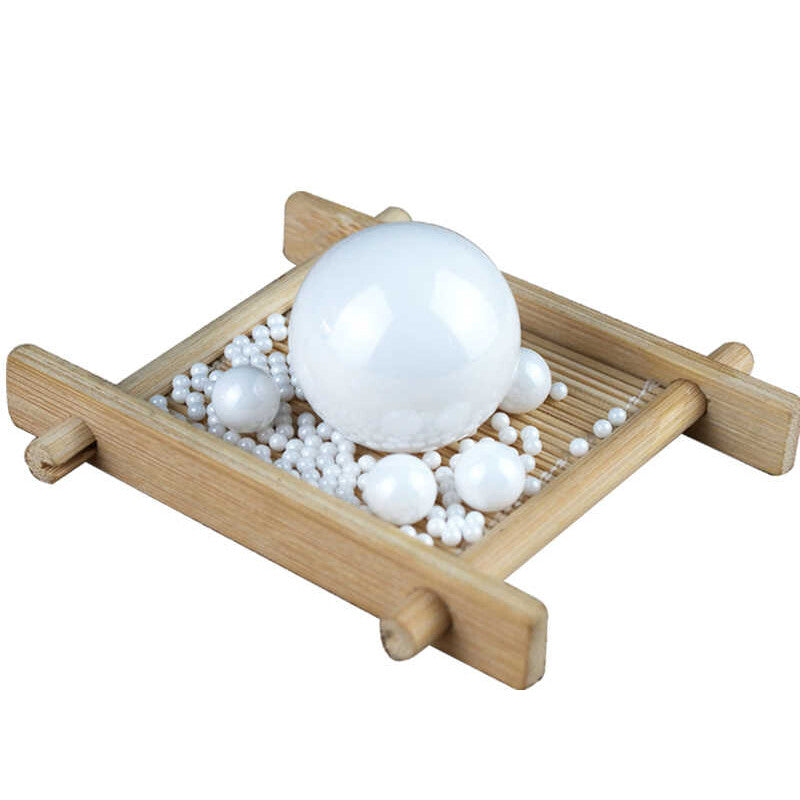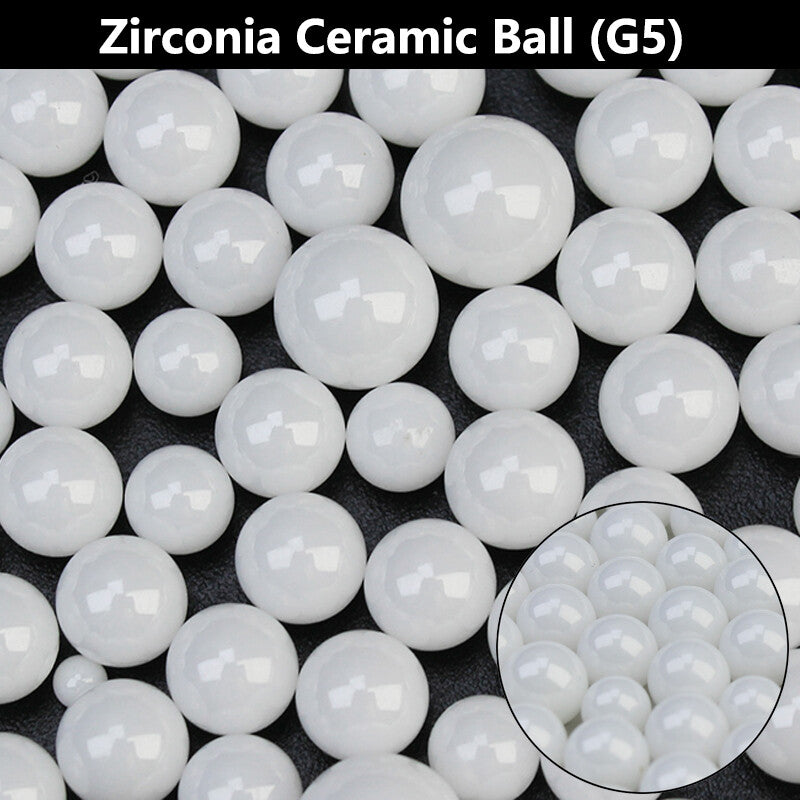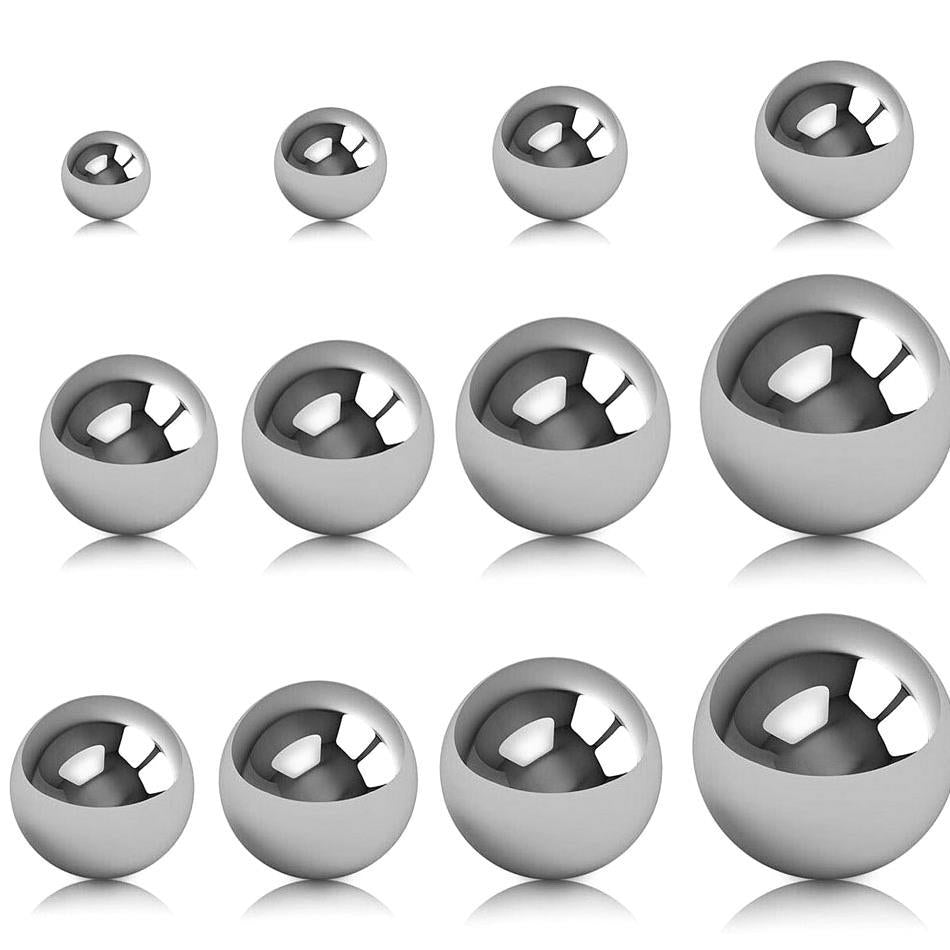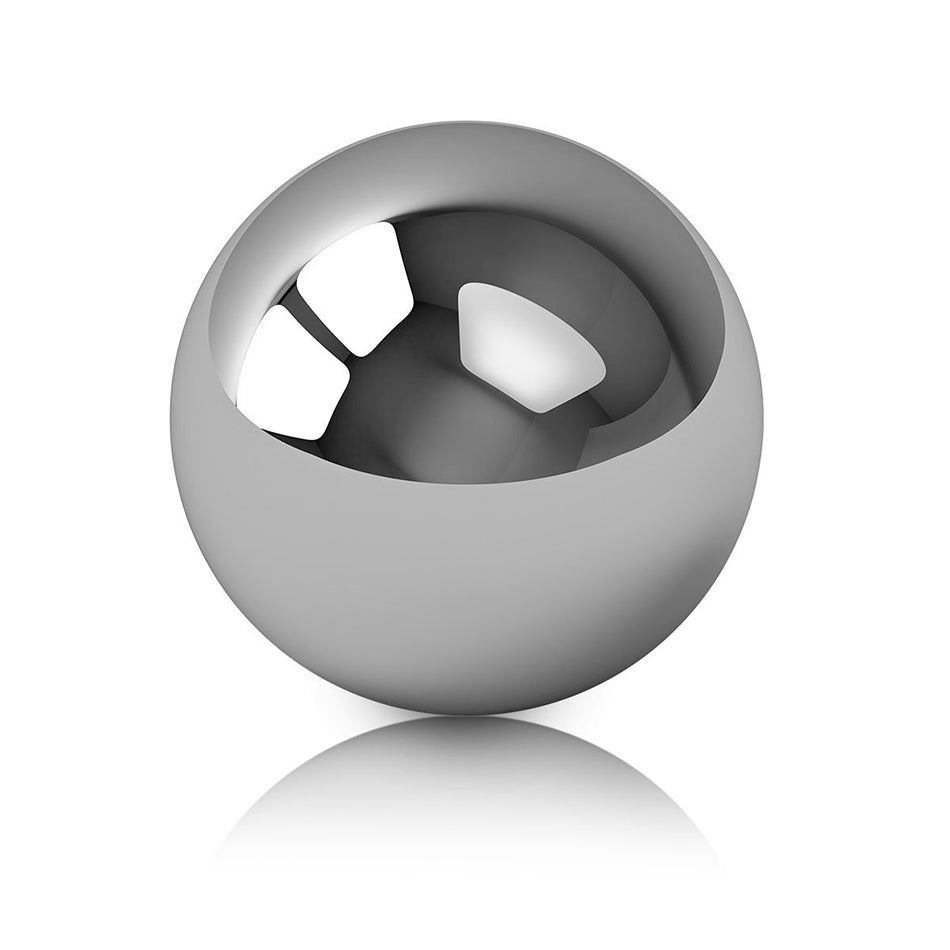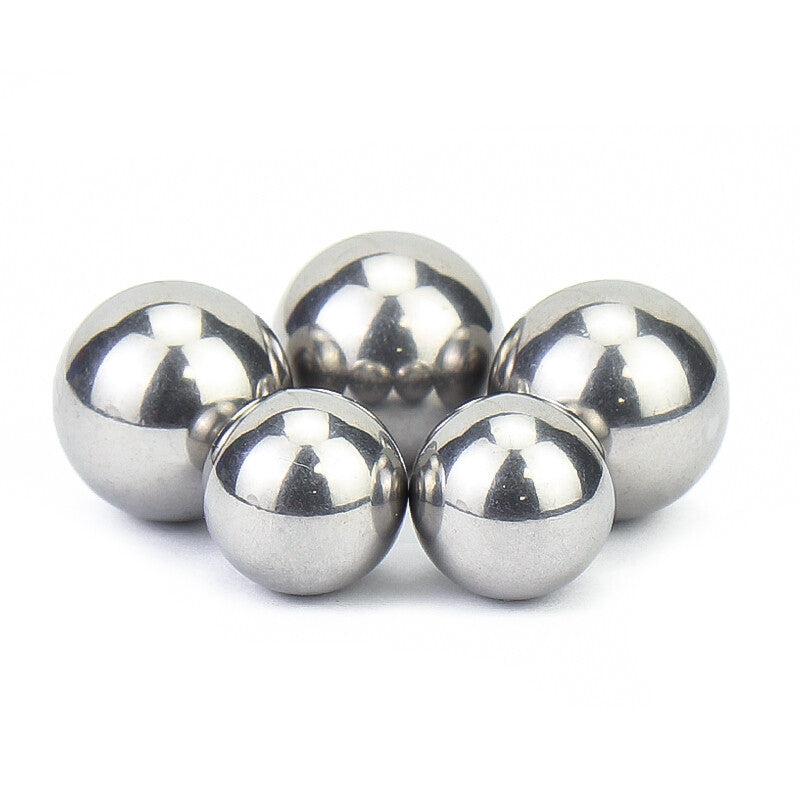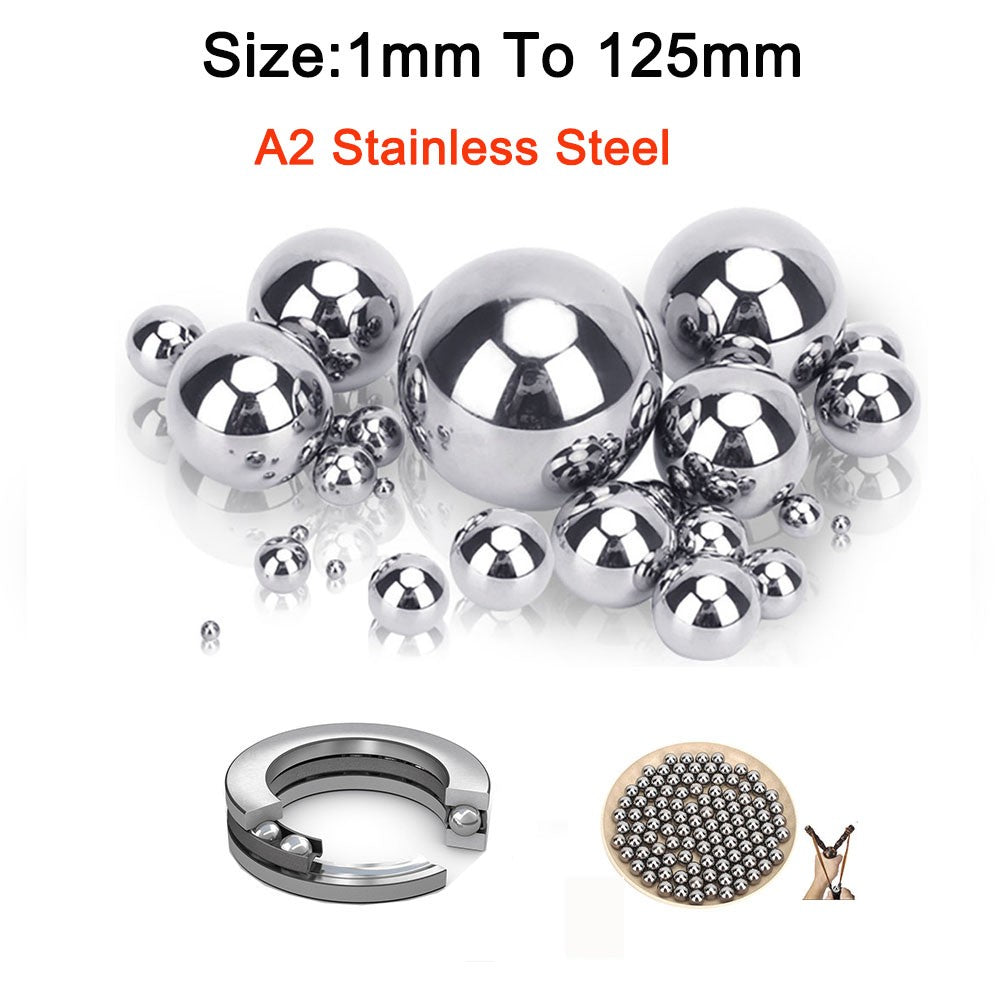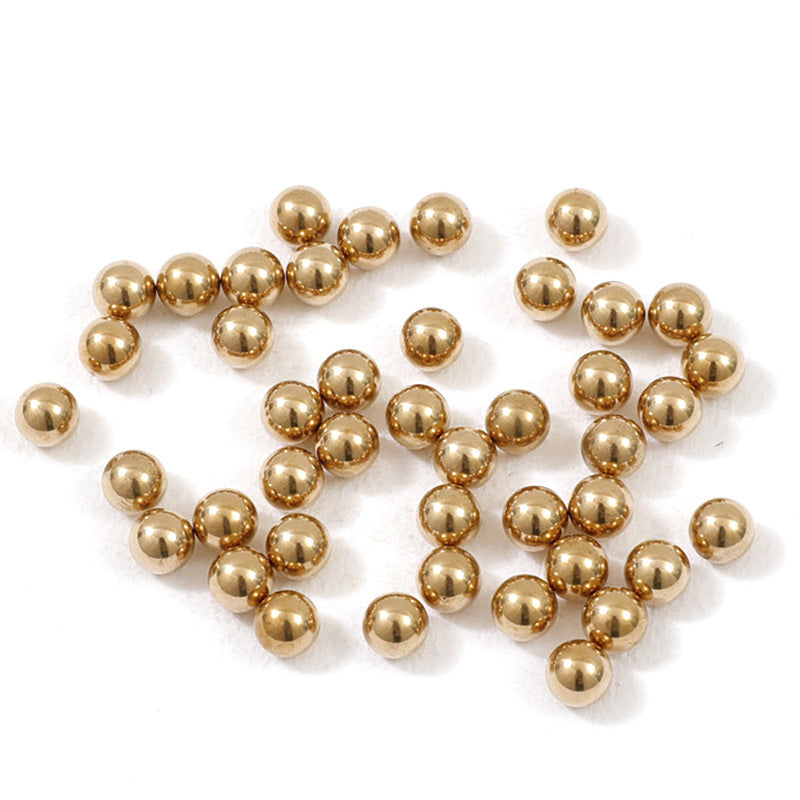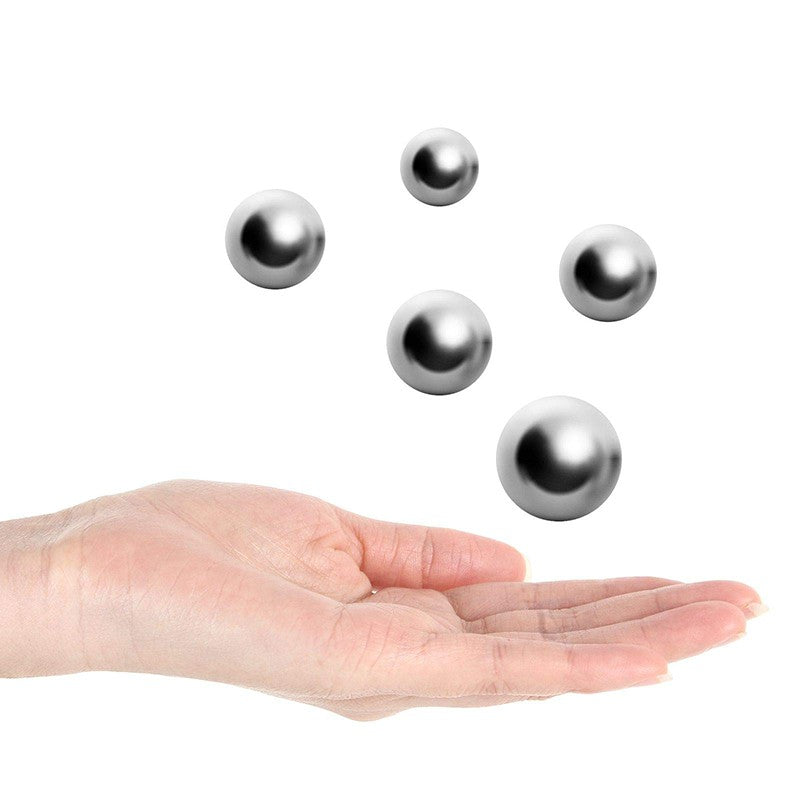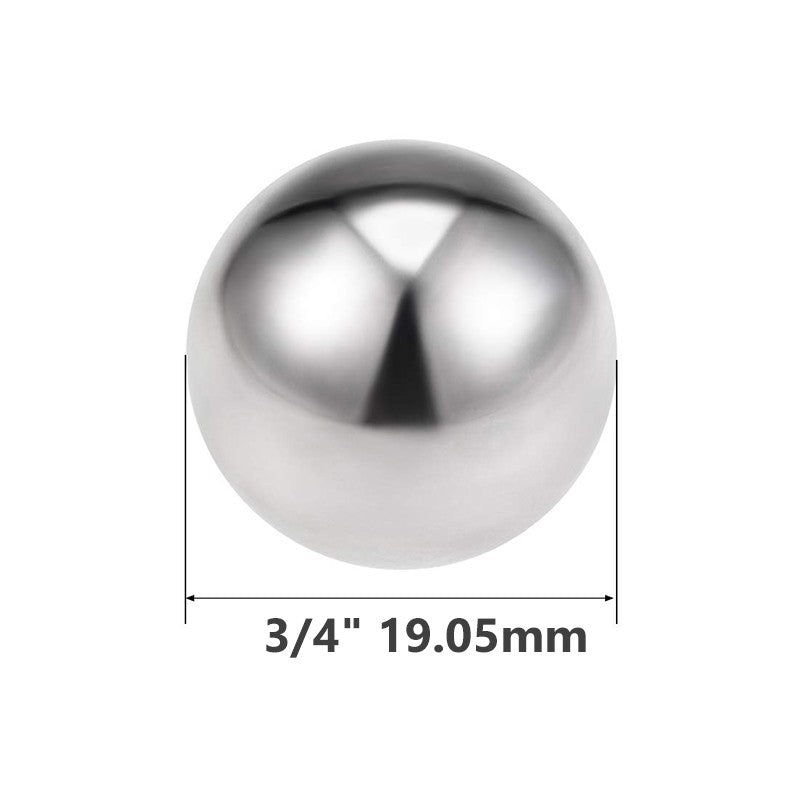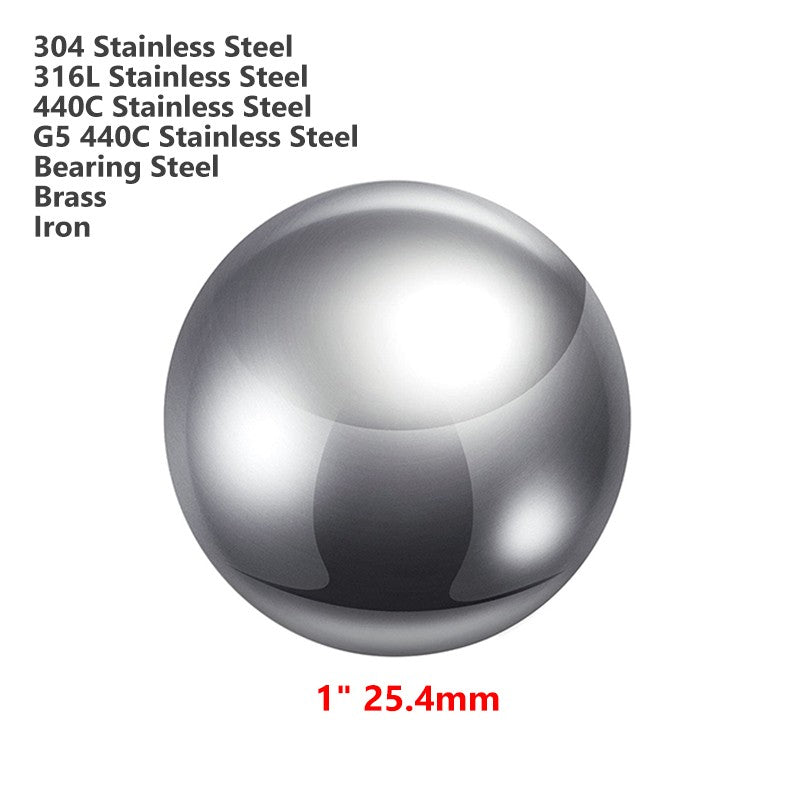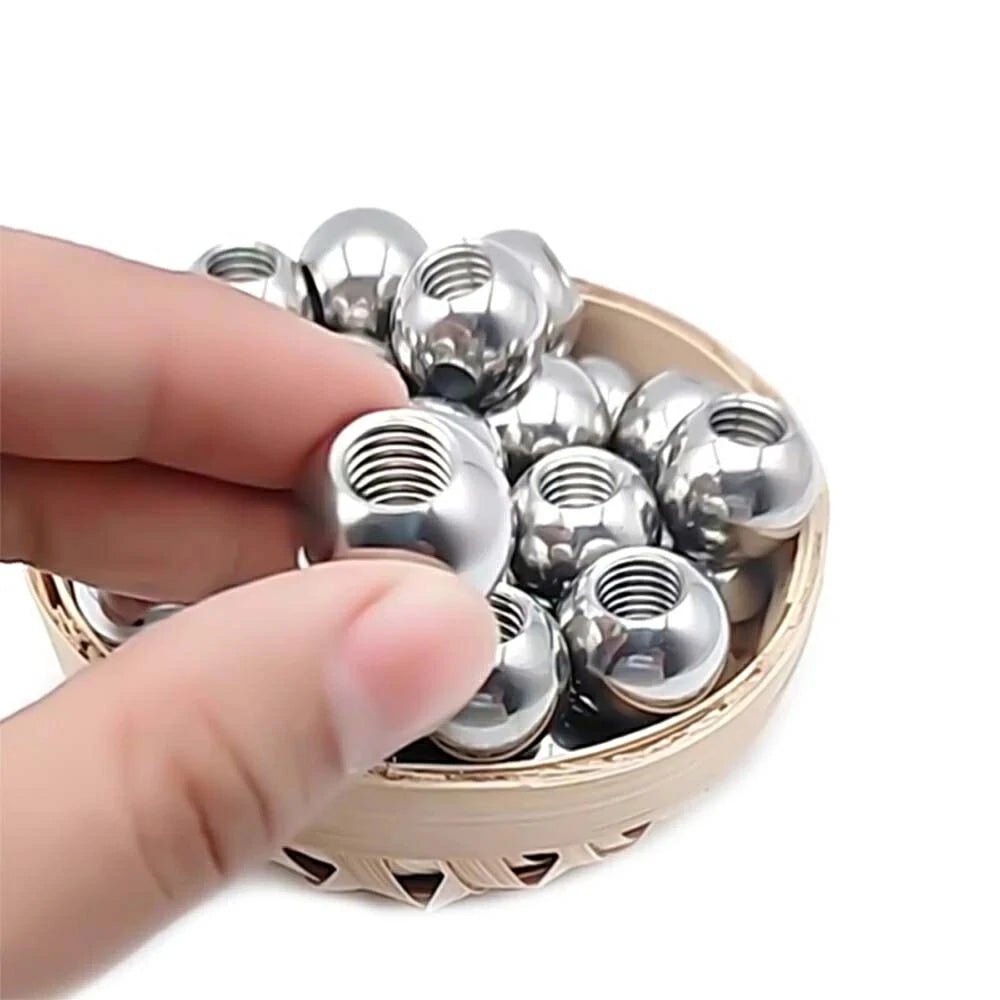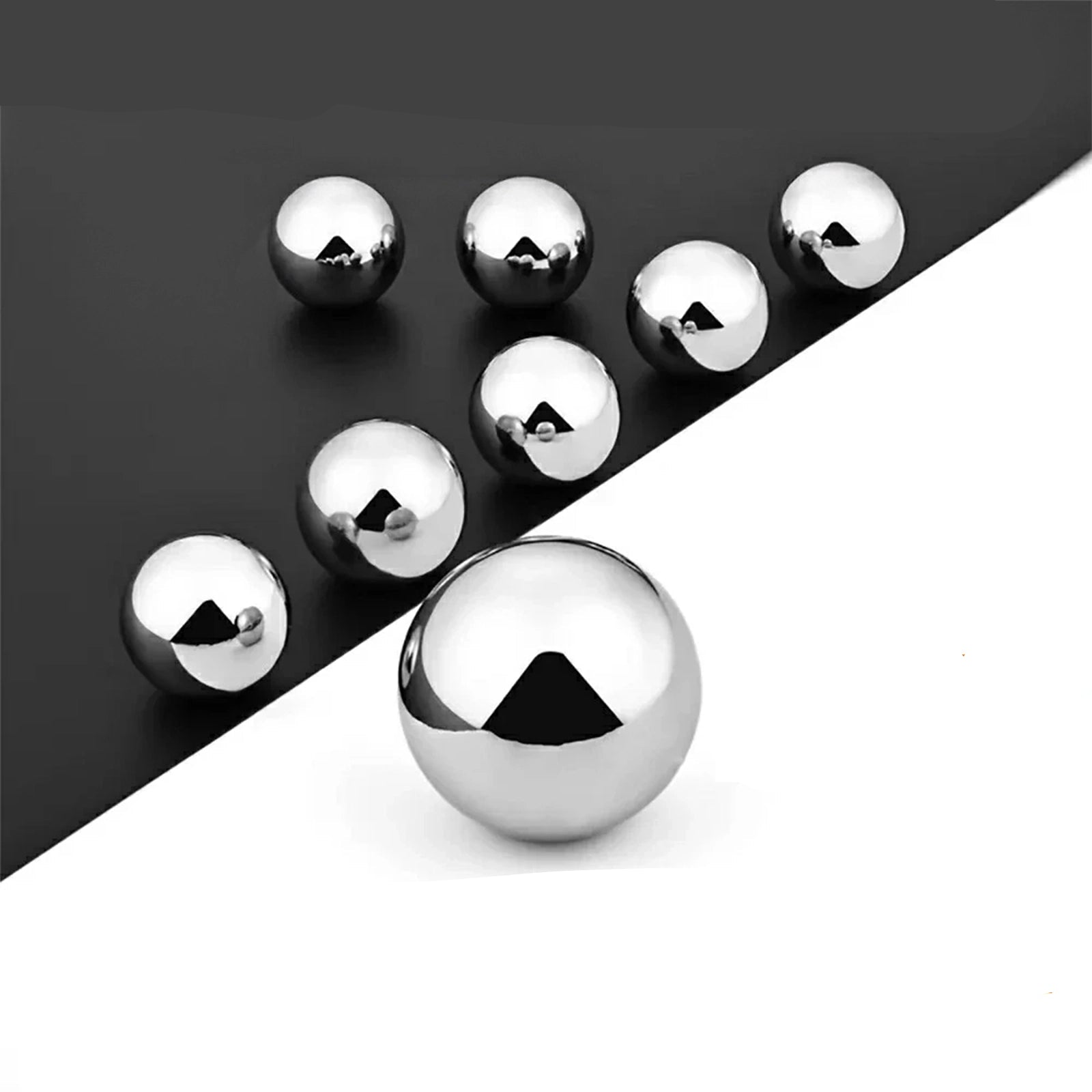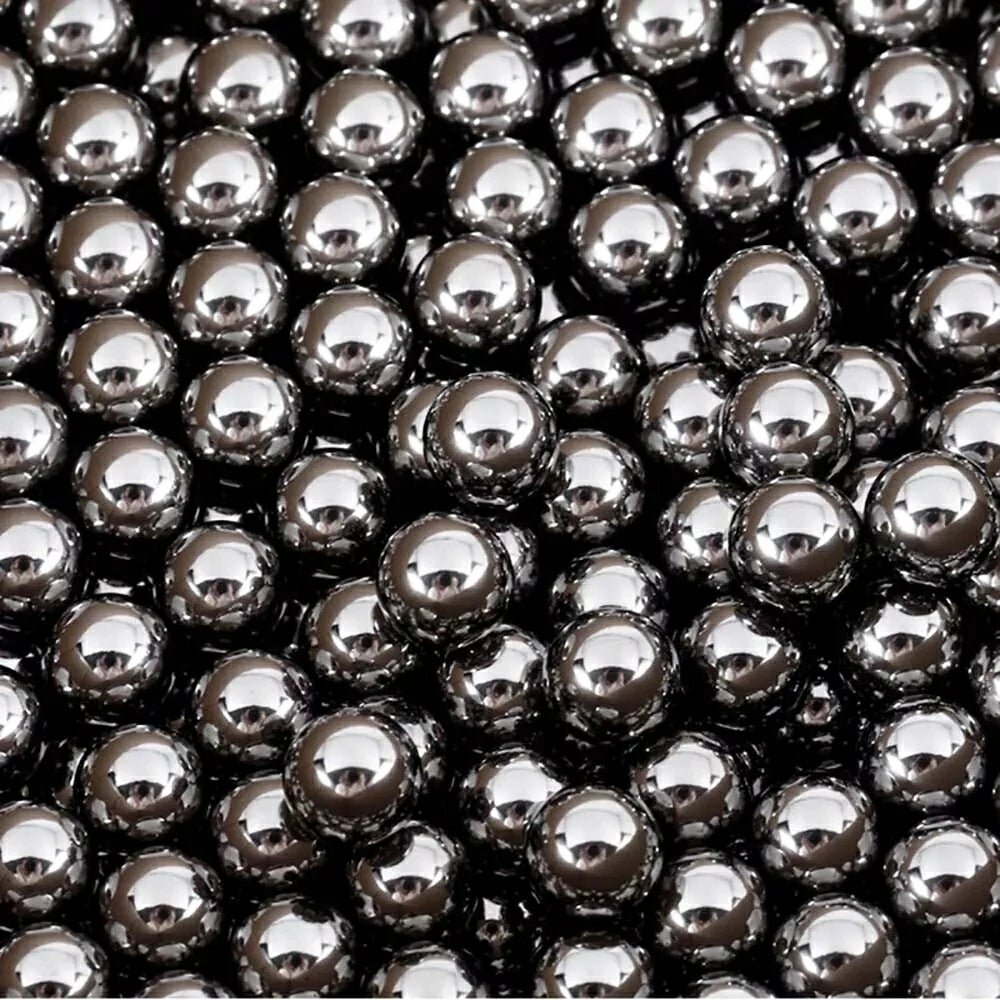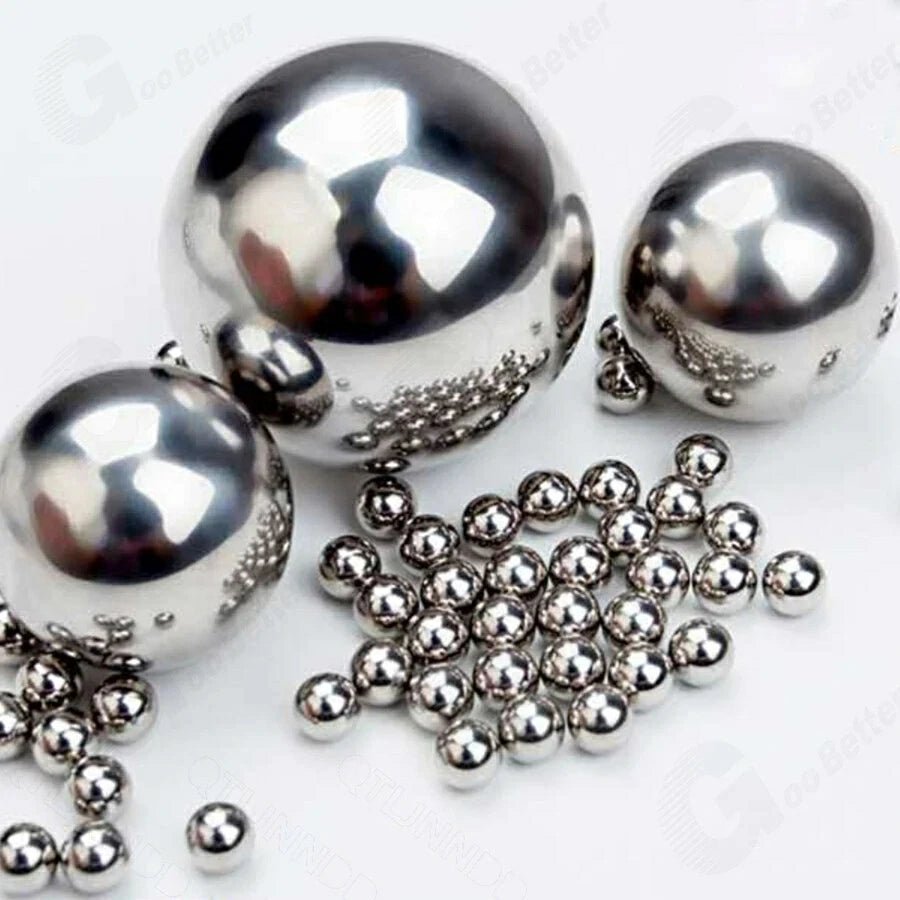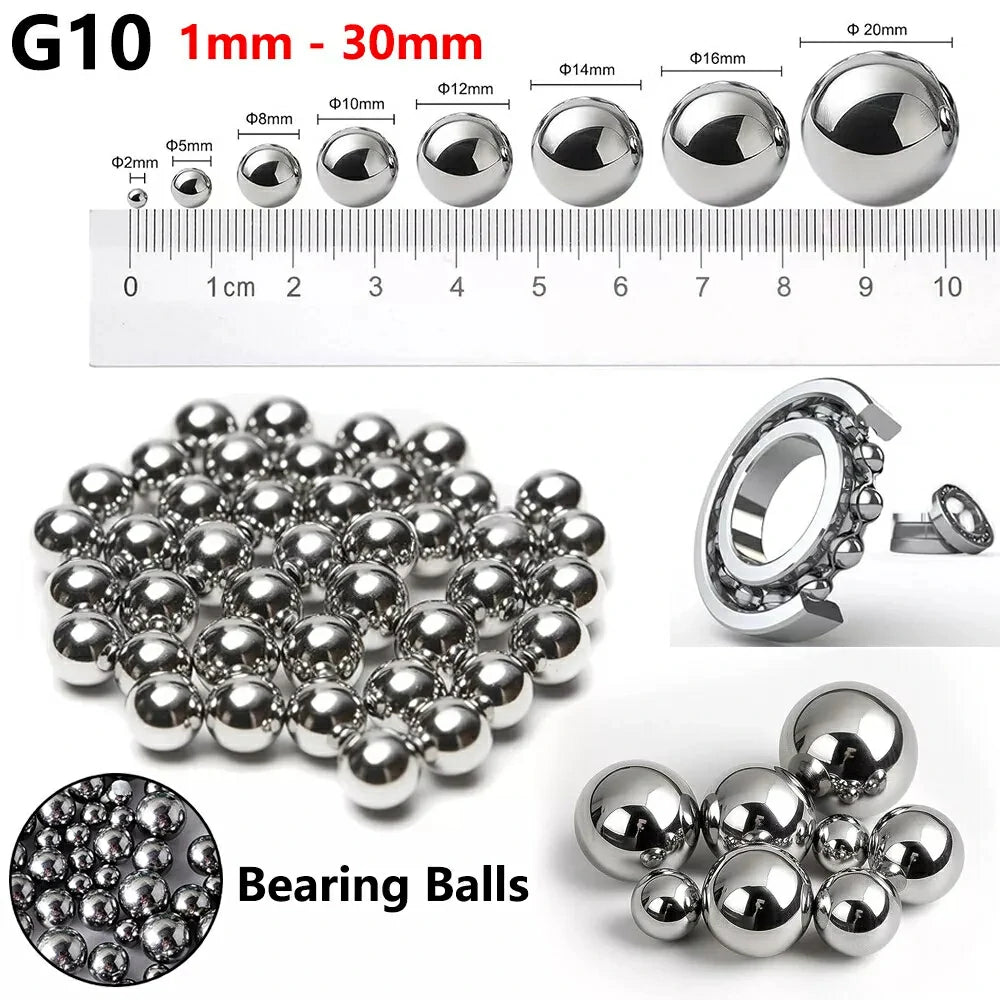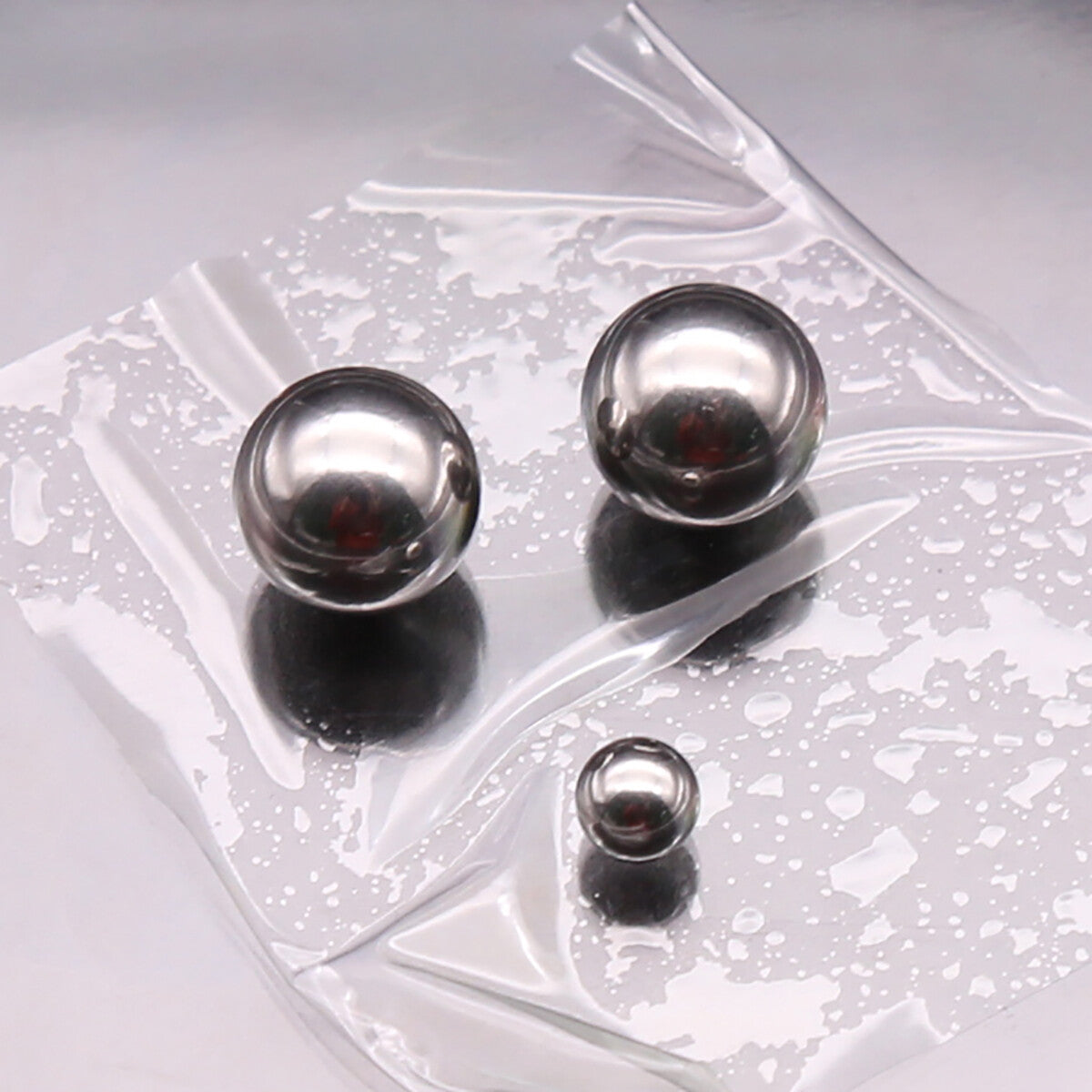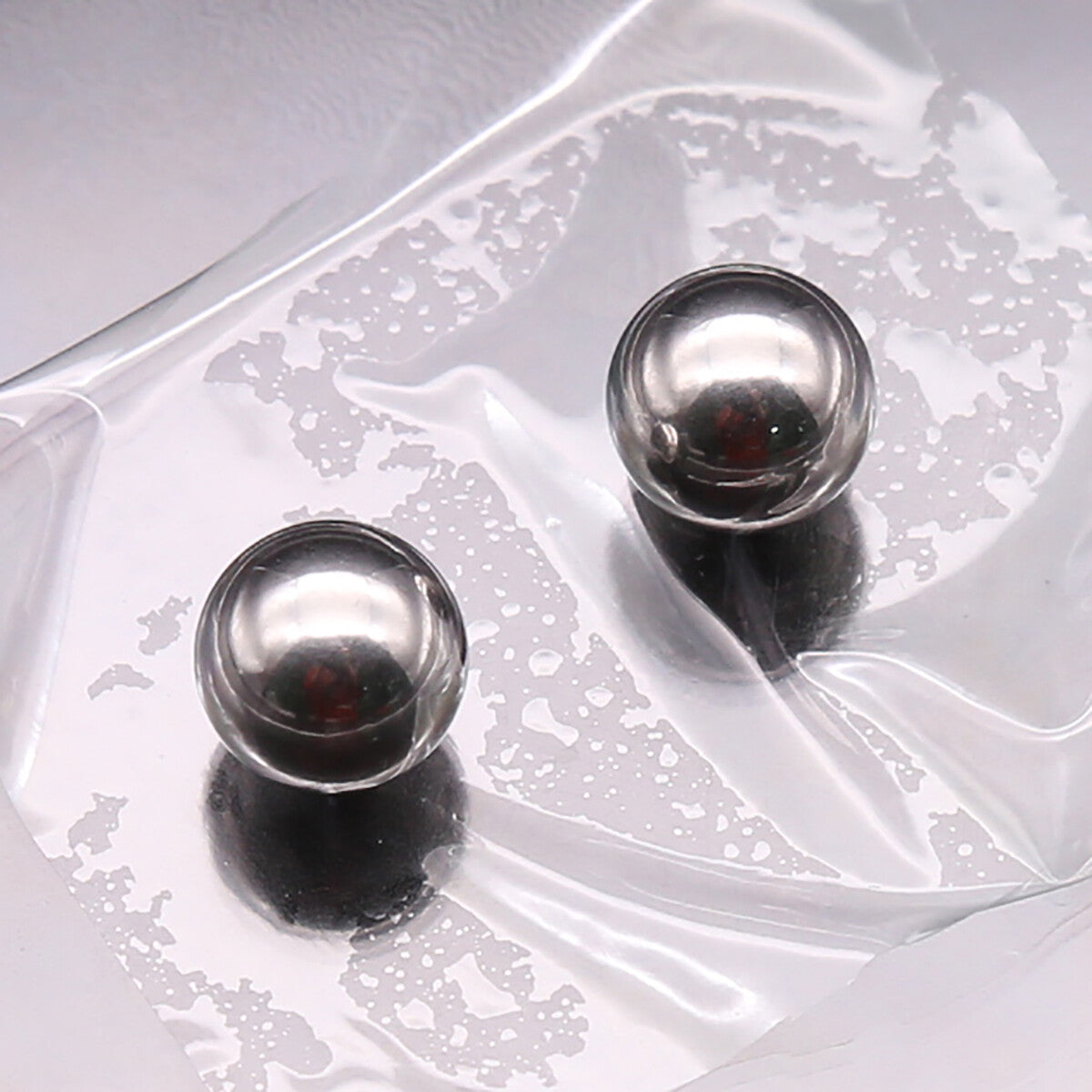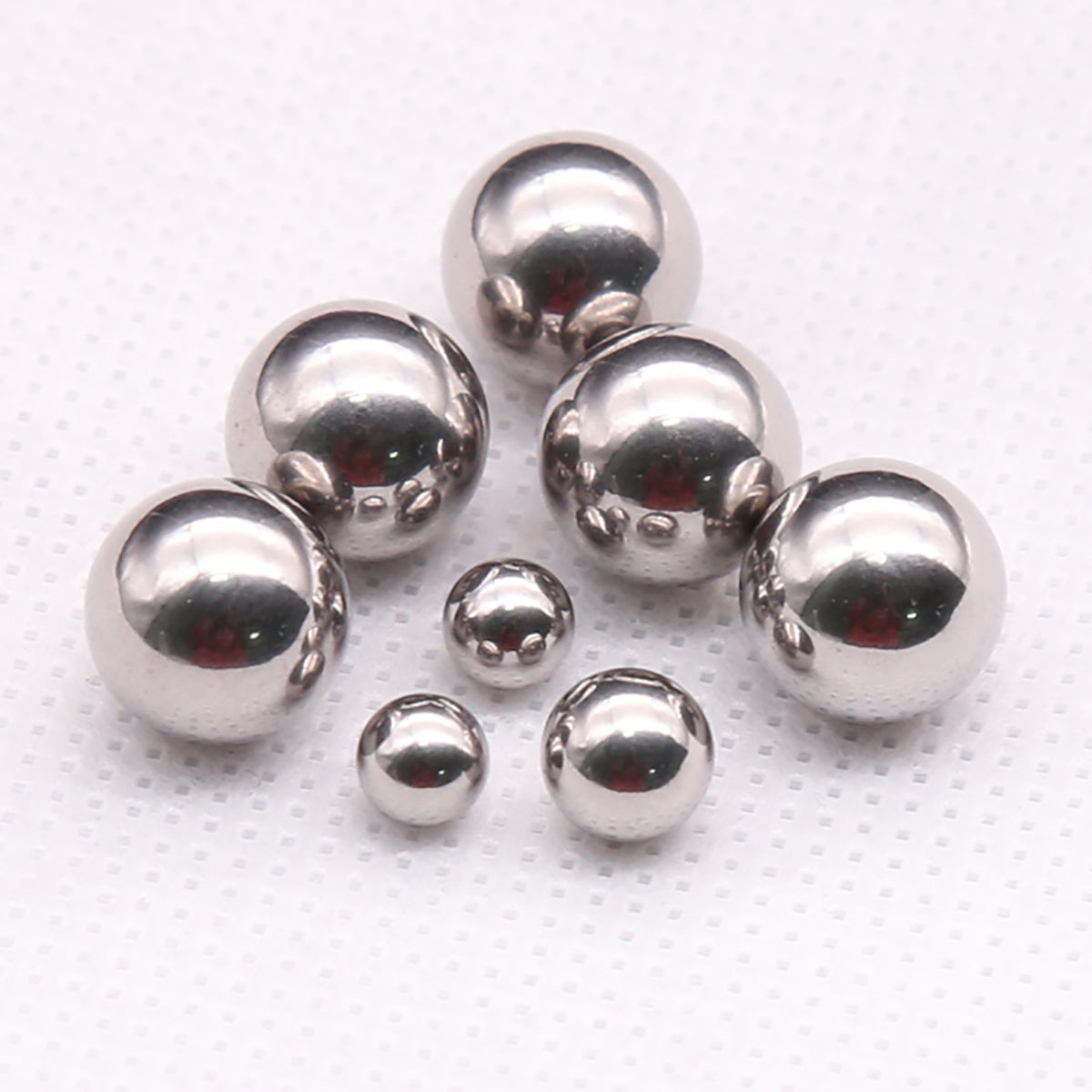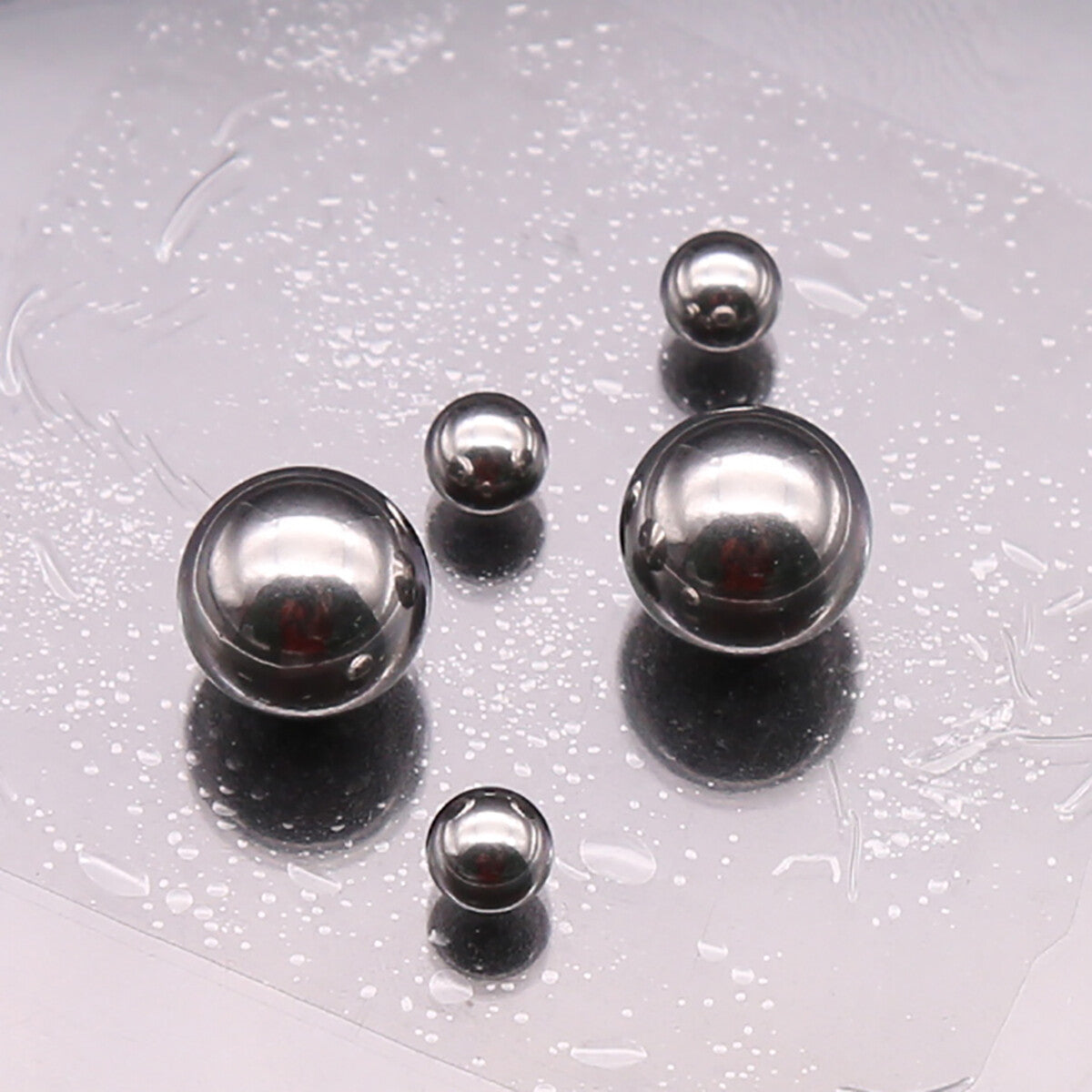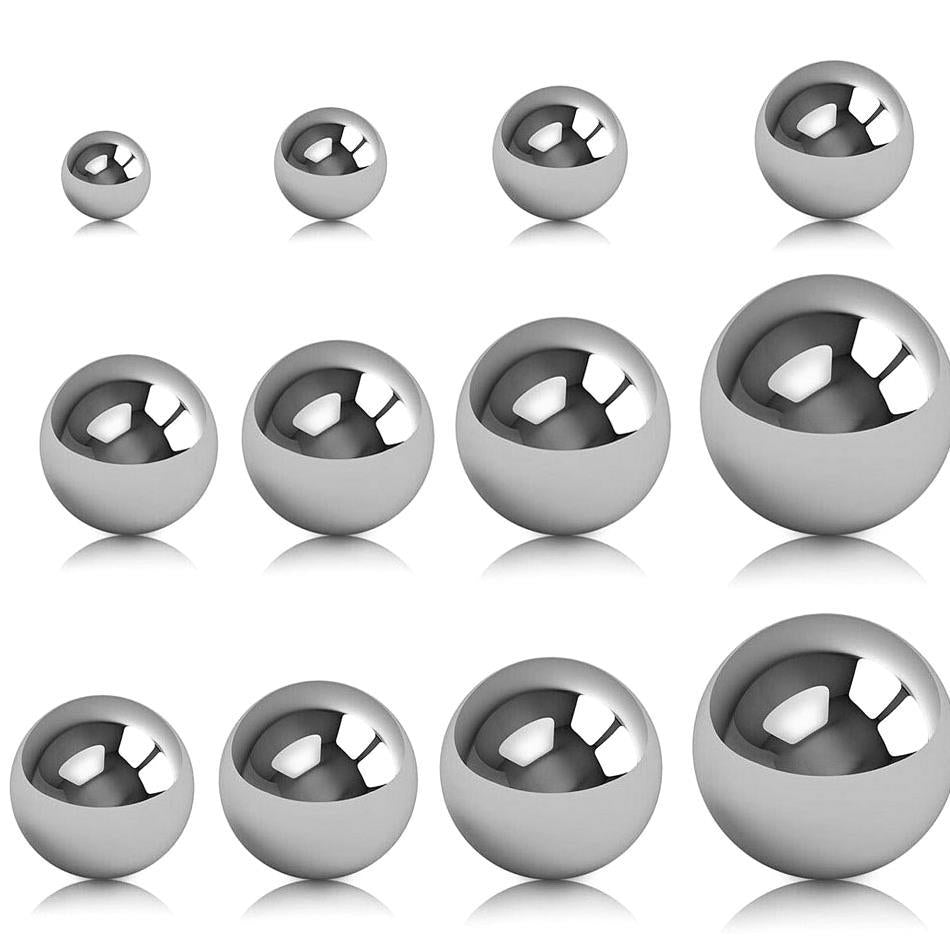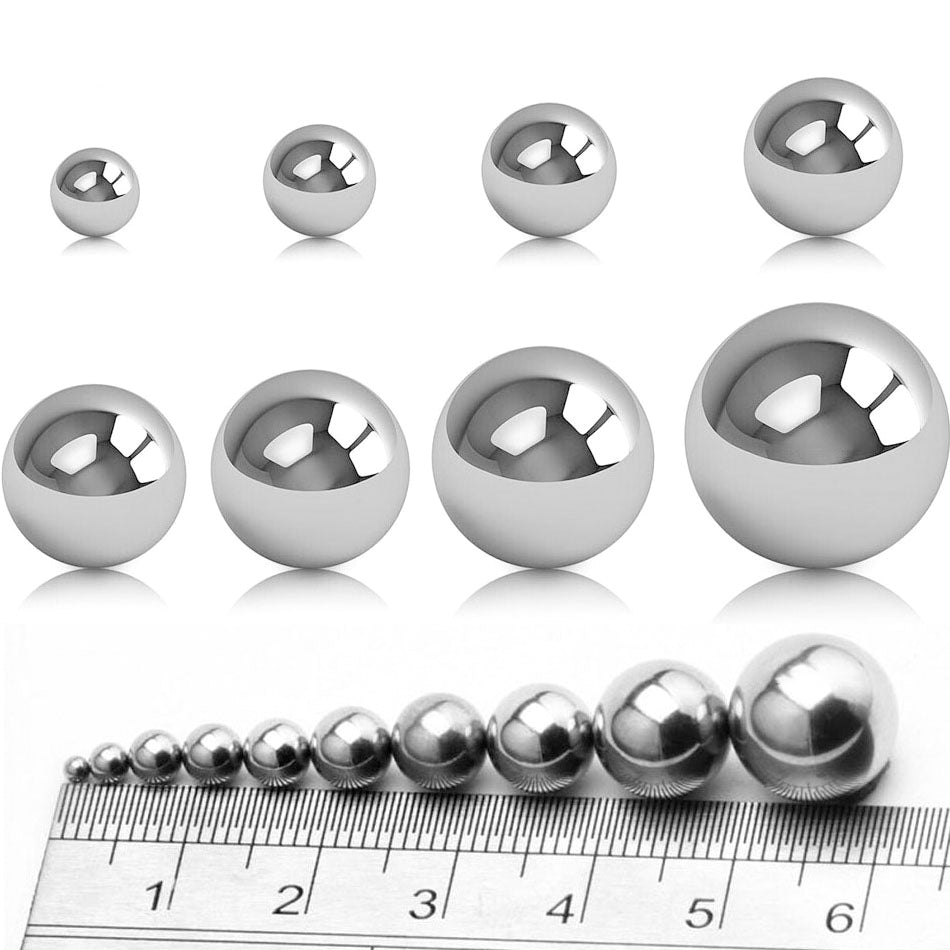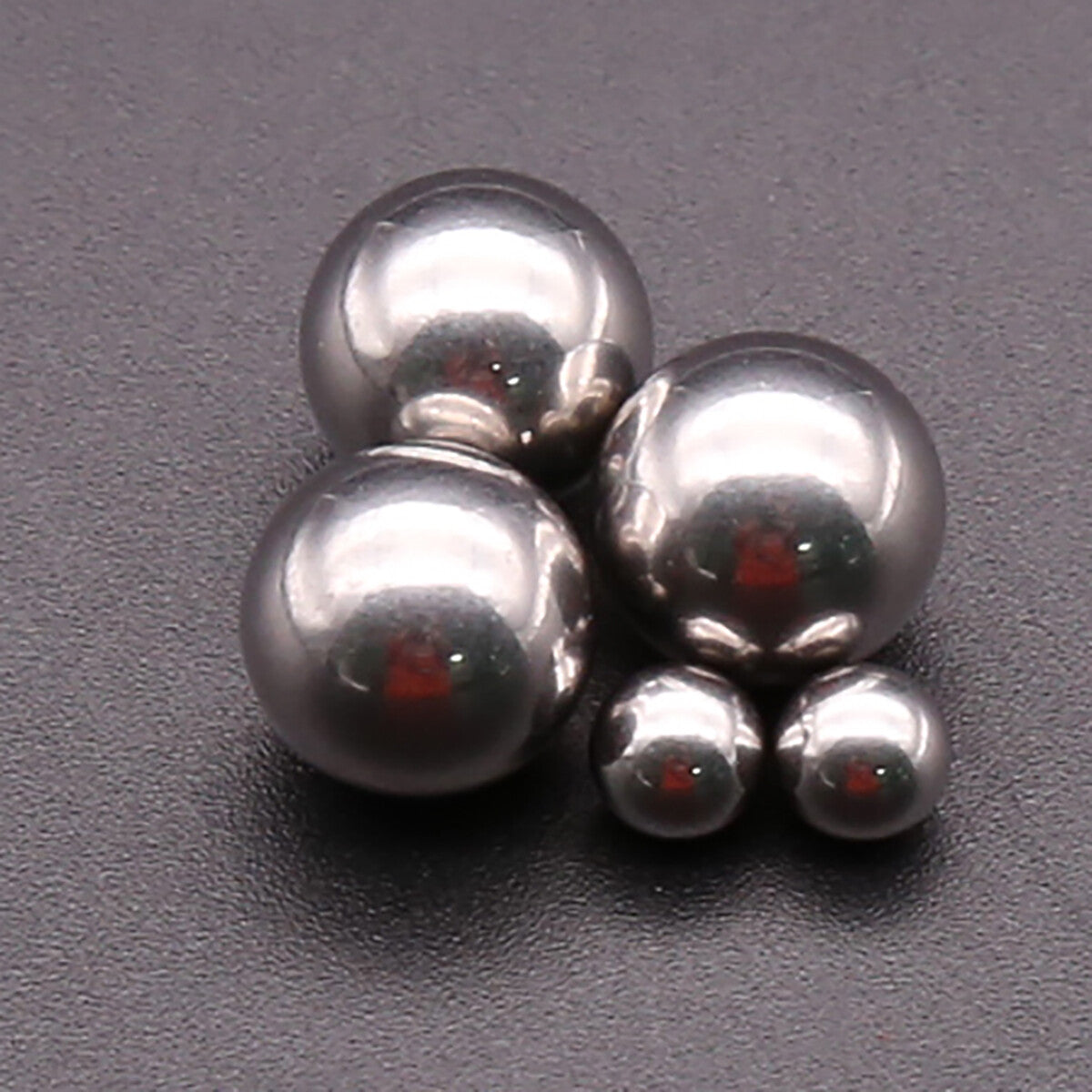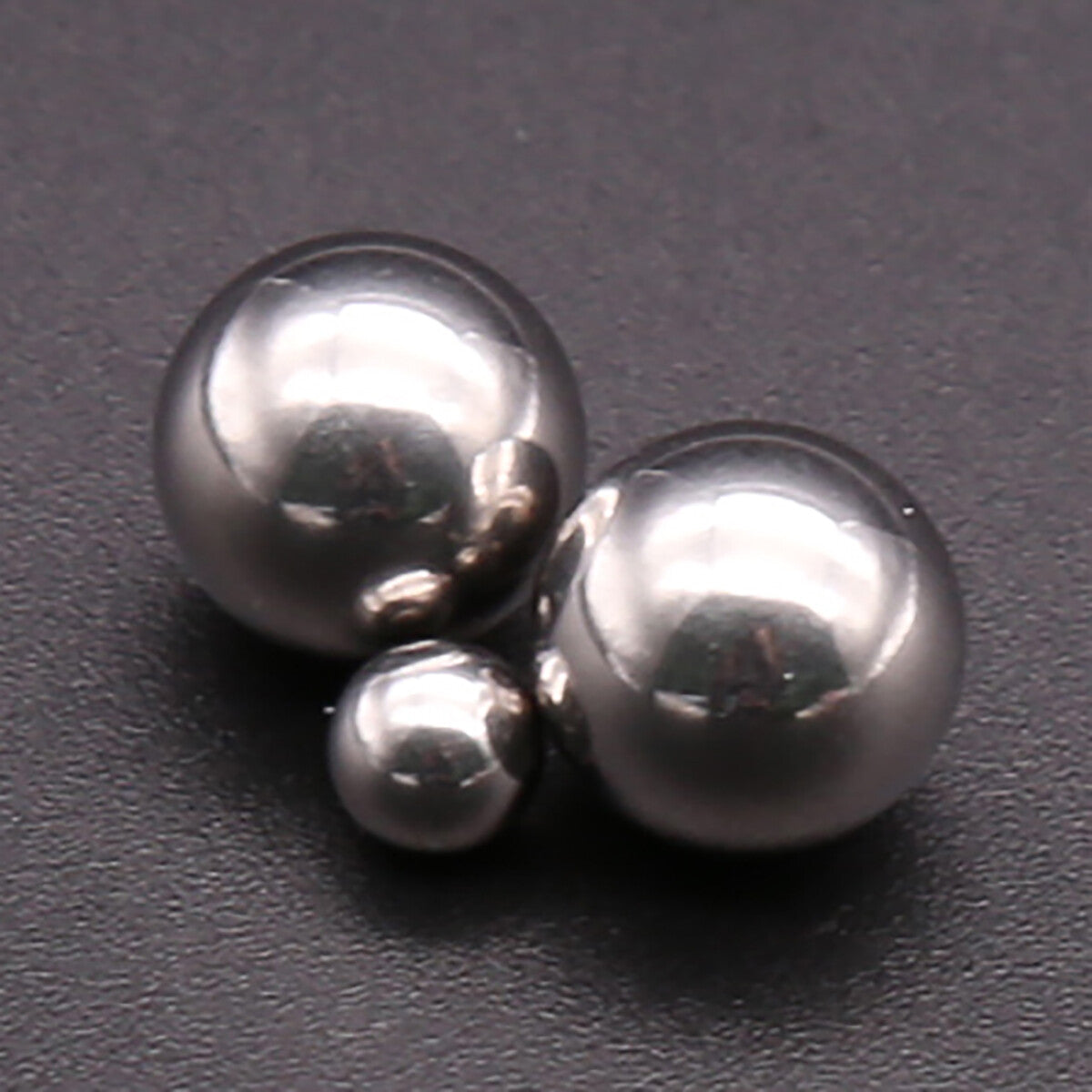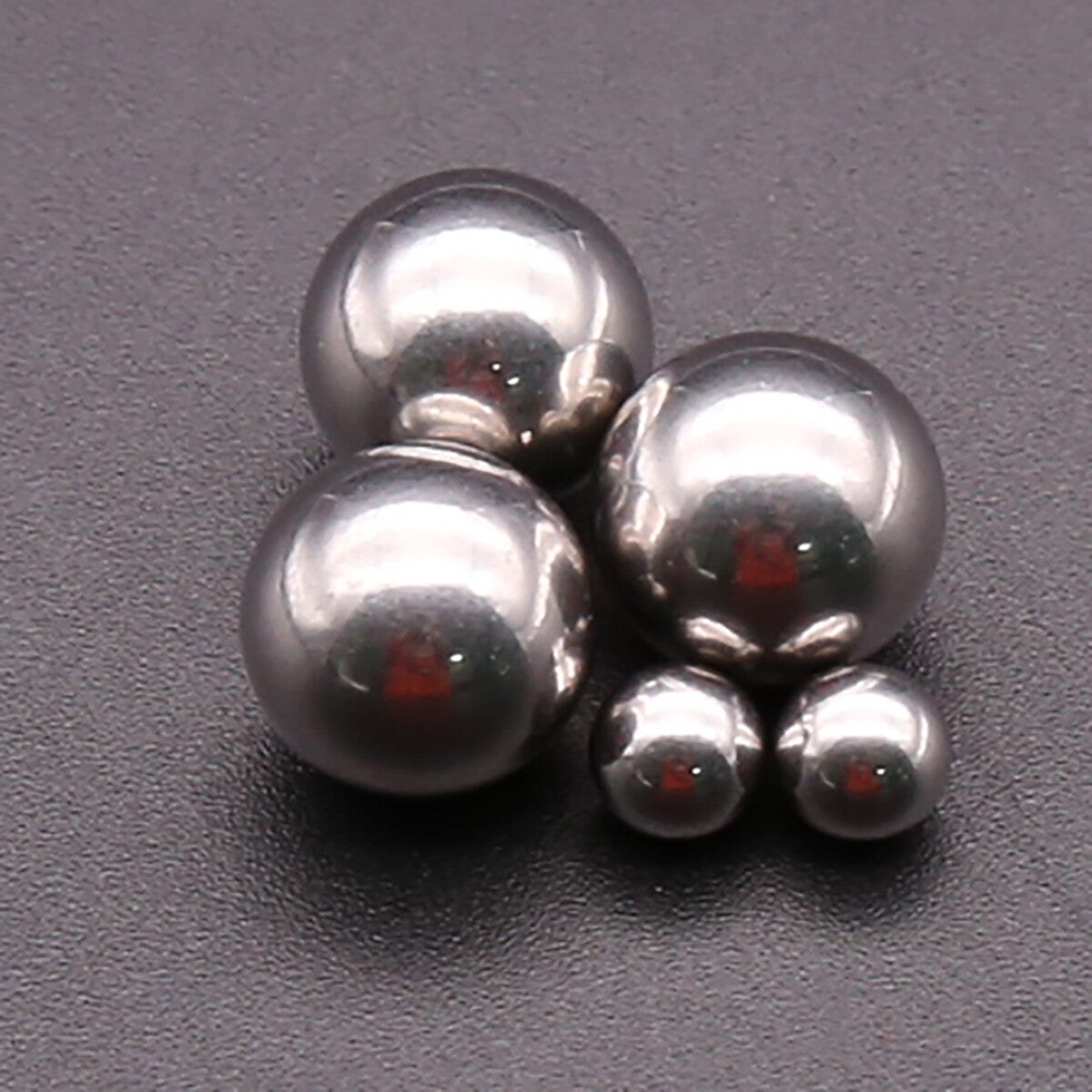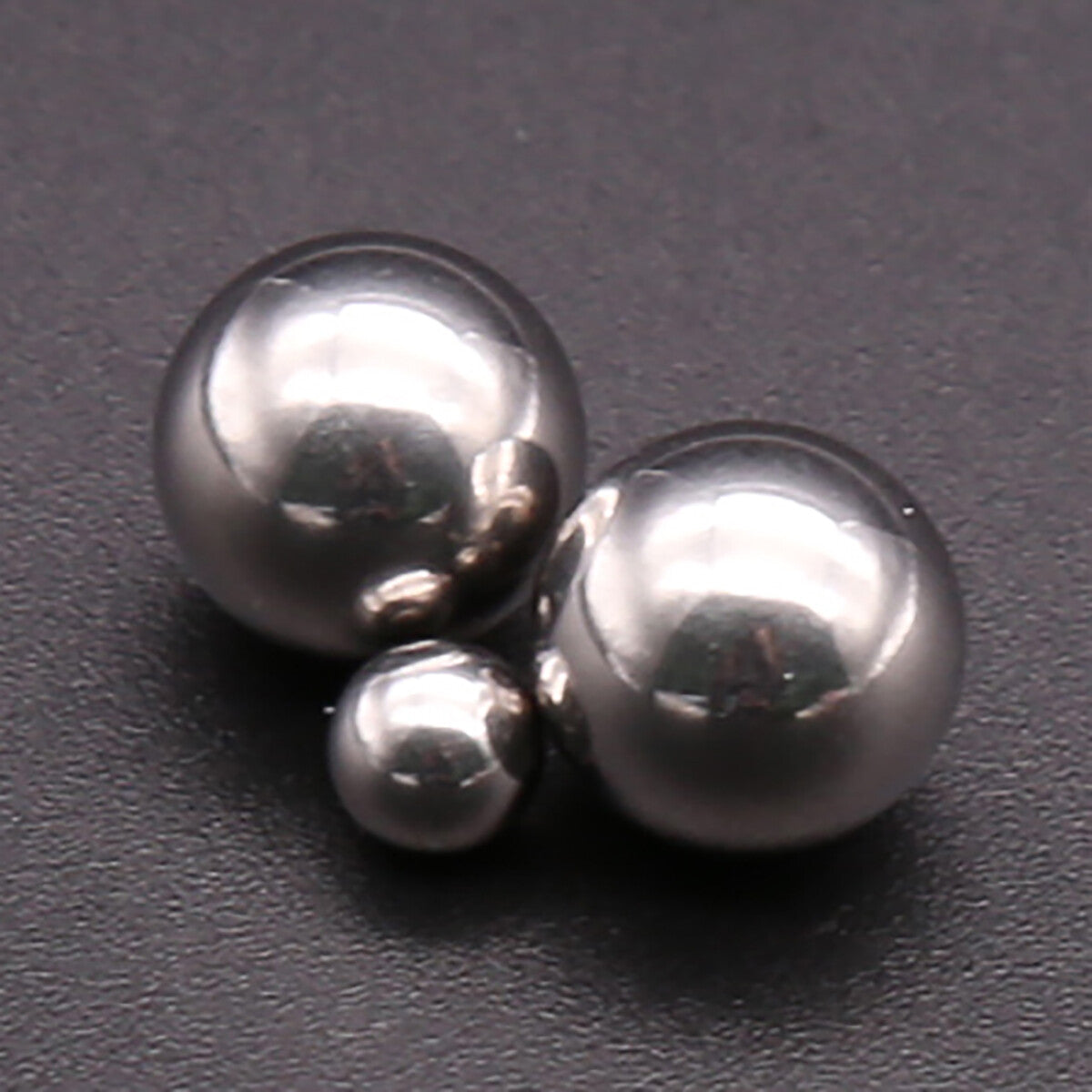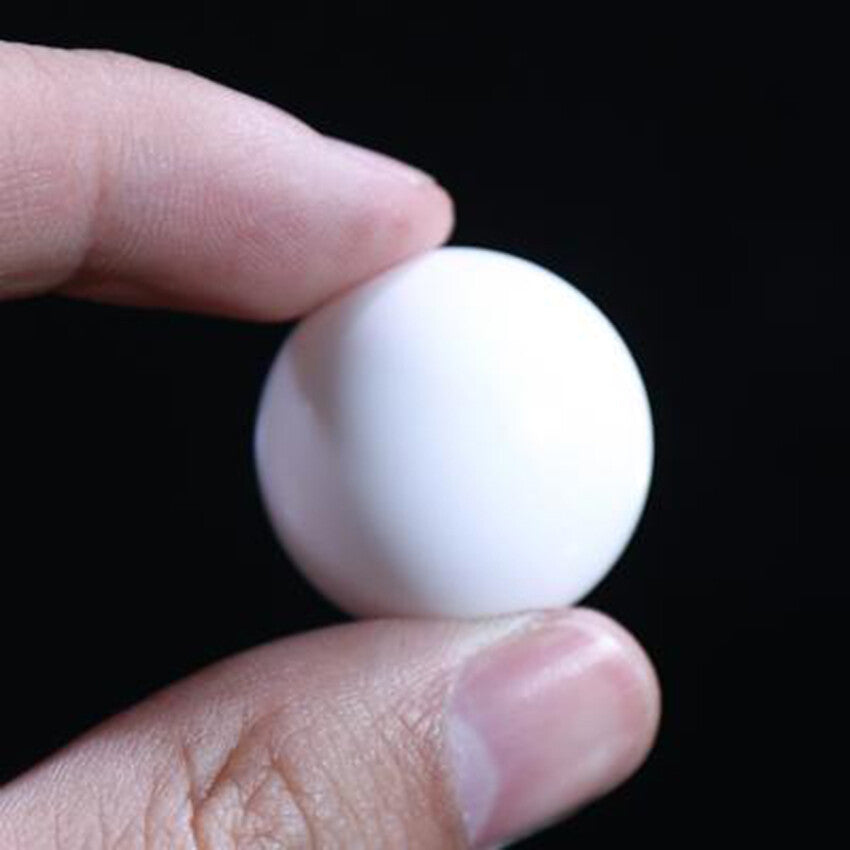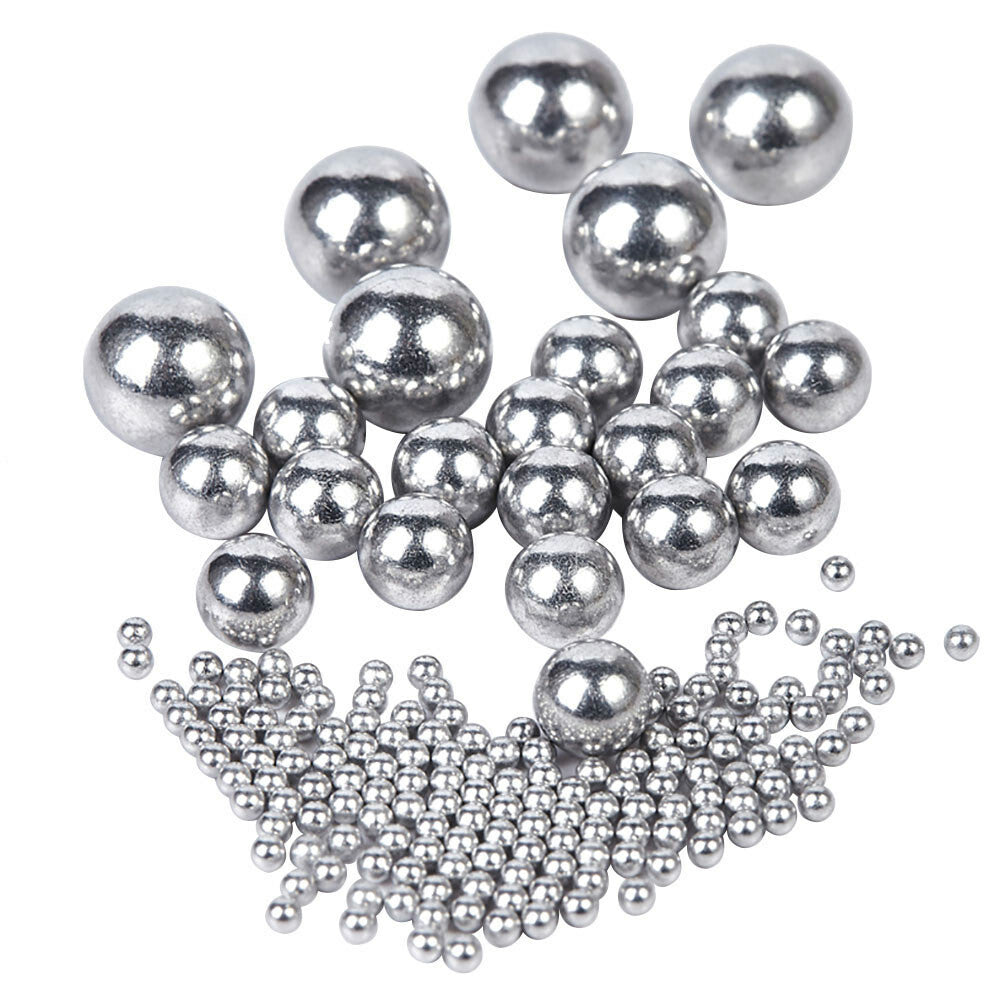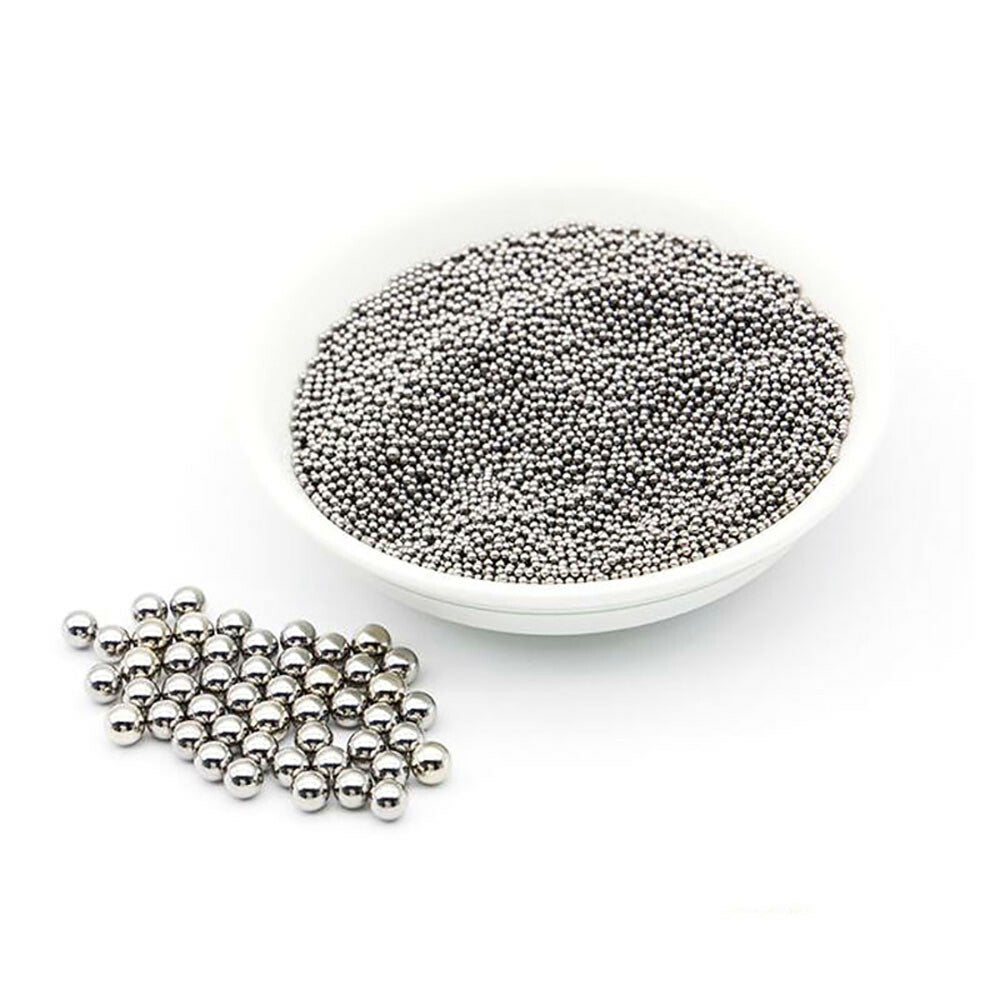Steel Ball Bearings: Comprehensive Guide to Types, Applications & Expert Selection Tips
Steel Ball Bearings ⚙️ are the backbone of countless mechanical systems, ensuring smooth motion, reducing friction, and extending equipment lifespan. At HomeDIYer, we offer a wide selection of high-quality steel ball bearings suitable for everything from small DIY projects to large-scale industrial machinery.
In this guide, we explore:
- Types of Steel Ball Bearings – including carbon steel, stainless steel, chrome steel, and specialty alloy balls.
- Applications – from automotive and industrial equipment to robotics, DIY, and aerospace projects.
- Expert Tips for Selection – how to choose the right size, material, and tolerance for your project to maximize performance and durability.
- Each bearing is precision-engineered to withstand heavy loads, resist corrosion, and perform reliably under extreme conditions. Whether you’re a hobbyist, engineer, or industrial professional, this guide helps you make informed decisions and select the perfect steel ball bearings for your specific needs.
1. Types of Steel Ball Bearings
1.1 Stainless Steel Ball Bearings
Stainless steel bearings, such as 316 stainless steel ball bearings and 440C stainless steel ball bearings, are renowned for their corrosion resistance. Ideal for marine environments, food processing equipment, or outdoor machinery, these bearings withstand moisture and chemicals. For example, our 3mm stainless steel ball bearings are popular in robotics and medical devices due to their precision and hygiene.
1.2 Carbon Steel Ball Bearings
Carbon steel bearings, like 52100 ball bearing steel, offer exceptional hardness and load capacity. They’re commonly used in automotive systems, conveyor belts, and heavy machinery. Pair them with proper lubrication to prevent rust in humid conditions.
1.3 Chrome Steel Ball Bearings
Chrome steel bearings combine durability with affordability. The chrome steel ball bearings in our catalog are heat-treated for enhanced strength, making them perfect for high-speed applications like electric motors or power tools.
1.4 Specialty Bearings
Looking for niche solutions? Explore our ceramic vs steel ball bearings comparison guide. Ceramic hybrids reduce weight and heat generation, while mounted steel ball bearings with cast iron housing provide stability for agricultural equipment.
2. Key Applications of Steel Ball Bearings
Industrial Machinery: ⚙️
- From conveyor systems to CNC machines, steel ball bearings ensure seamless motion under heavy loads.
- Provide high durability, precise alignment, and resistance to wear and vibration.
- Help industrial equipment operate efficiently and reduce maintenance downtime.
- Essential for heavy-duty presses, robotic arms, and assembly lines, ensuring long-term reliability and optimal performance.
DIY Projects: 🛠️
- Upgrade your 3D printers, skateboards, or Craftsman 26.5-inch steel ball-bearing tool cabinets with precision components.
- Using precision steel ball bearings achieves smoother rotation, quieter operation, and improved lifespan.
- Ideal for custom robotics, home workshop innovations, and personal DIY projects.
- Enhance performance and bring professional-level precision to hobbyist builds.
Automotive: 🚗
- Wheel hubs, transmissions, and engine components rely on durable steel ball bearings like 1/2 inch sizes.
- High-quality steel ball bearings withstand extreme temperatures, heavy loads, and constant rotational stress.
- Improve vehicle safety, reliability, fuel efficiency, and reduce vibration.
- Extend the service life of automotive components.
Aerospace & Robotics: ✈️🤖
- Stainless steel and ceramic hybrid bearings are favored for lightweight and corrosion-resistant properties.
- In aerospace and robotic applications, steel ball bearings and hybrid variants balance strength, precision, and minimal maintenance.
- Help aircraft components, drones, and robotic systems maintain stability and handle high rotational speeds.
- Perform reliably in extreme environmental conditions, from high altitudes to industrial robotic workspaces.
3. How to Choose the Right Steel Ball Bearing
3.1 Consider Material & Environment
- Use stainless steel bearing balls in wet or corrosive environments.
- Opt for carbon steel ball bearings for high-load scenarios in dry conditions.
3.2 Size & Tolerance
Measure your shaft and housing precisely. Our 1/4 inch steel ball bearings and 10mm steel ball bearings come in standardized sizes, but custom options are available.
3.3 Load Capacity & Speed
Check the bearing’s dynamic and static load ratings. For high-speed applications like drones, ceramic ball bearings vs steel may offer better performance.
3.4 Budget & Bulk Orders
Need bulk steel ball bearings? Contact us for discounted pricing on orders over 100 units.
4. Maintenance Steel Ball Bearing Tips for Longevity
- Lubricate Regularly: Use high-temperature grease for bearings in engines or industrial ovens.
- Avoid Contamination: Shield bearings from dust and debris with seals or shields.
- Inspect for Wear: Replace bearings showing pitting, discoloration, or uneven rotation.
5. Why Choose HomeDIYer‘s Steel Ball Bearing?
- Wide Selection: From 1.5-inch steel ball bearings to 8mm stainless steel ball bearings, we stock sizes for every project.
- Expert Support: Not sure about ball bearing steel grades? Our team is here to help!
- Fast Shipping: Orders ship within 24 hours, with free delivery on qualifying purchases.
6. Some of Steel Ball Bearing FAQ Section
Q: Are steel ball bearings magnetic?
A: Most steel bearings are magnetic, but stainless steel variants (e.g., 316) have lower magnetism.
Q: What’s the difference between 52100 and chrome steel?
A: 52100 is a high-carbon alloy with superior hardness, while chrome steel balances cost and performance.
Q: Can I use steel bearings in high-temperature environments?
A: Yes! Our stainless steel ball bearing swivels tolerate temperatures up to 600°F with proper lubrication.
Final Thoughts
Whether you’re a DIY enthusiast crafting a custom bike or an engineer sourcing industrial steel ball bearings, HomeDIYer has the expertise and inventory to meet your needs. Explore our collection today, and leverage our buying guides to make informed decisions. For bulk orders or technical questions, reach out to our support team—we’re here to help your projects run smoothly!
🔧 Shop Now & Enjoy 10% Off Your First Order with Code: HOMEDIYER10

